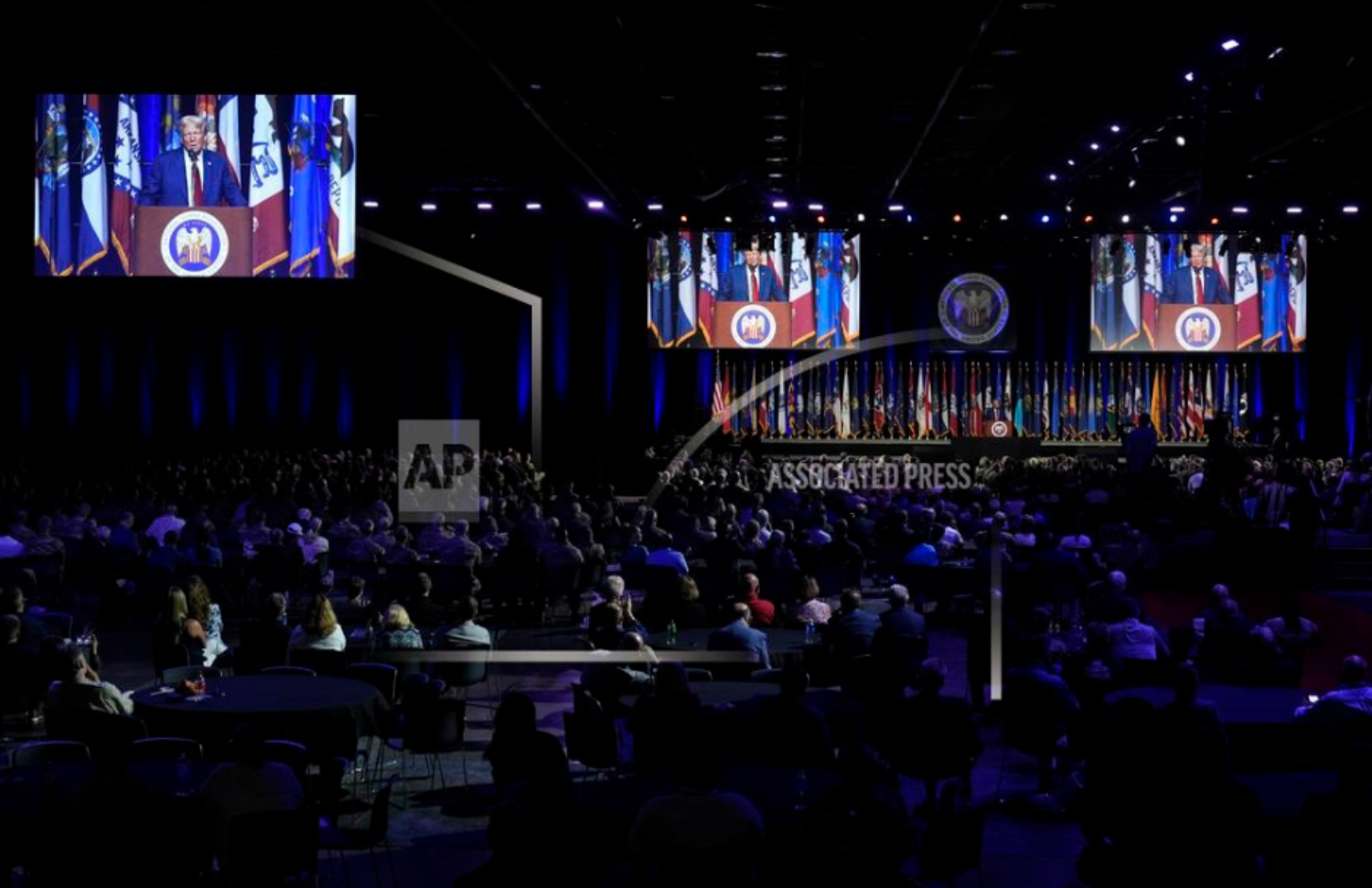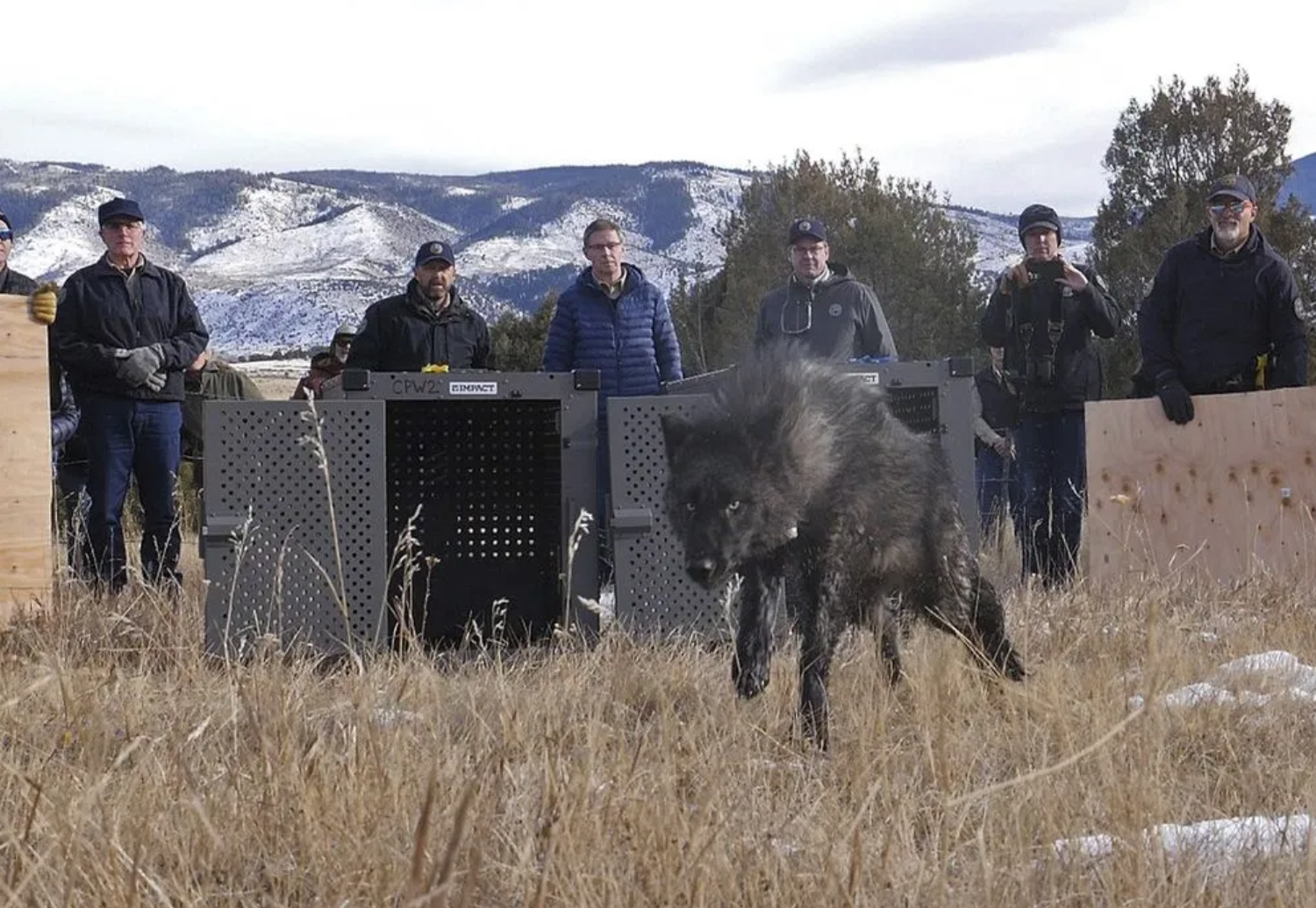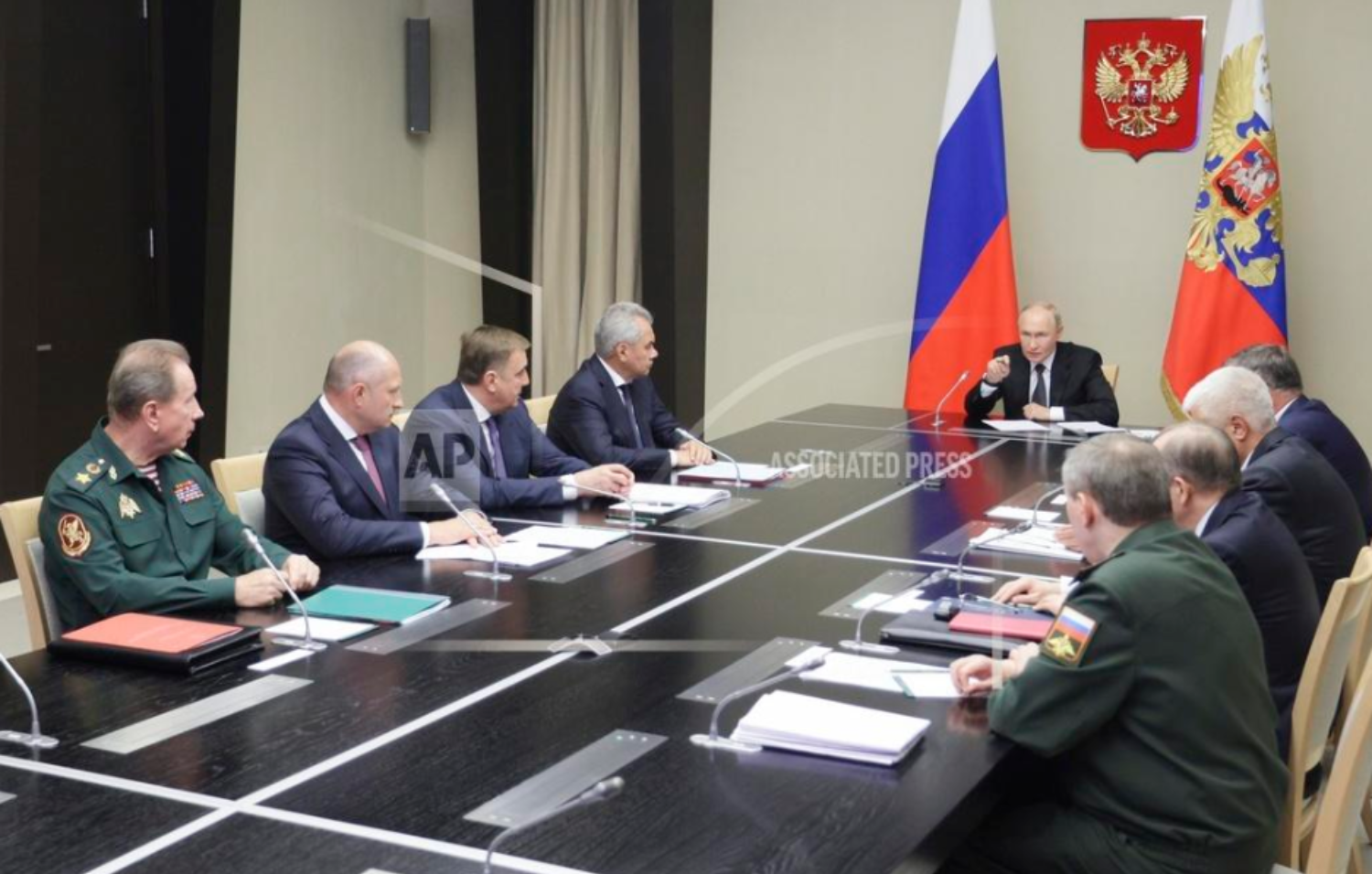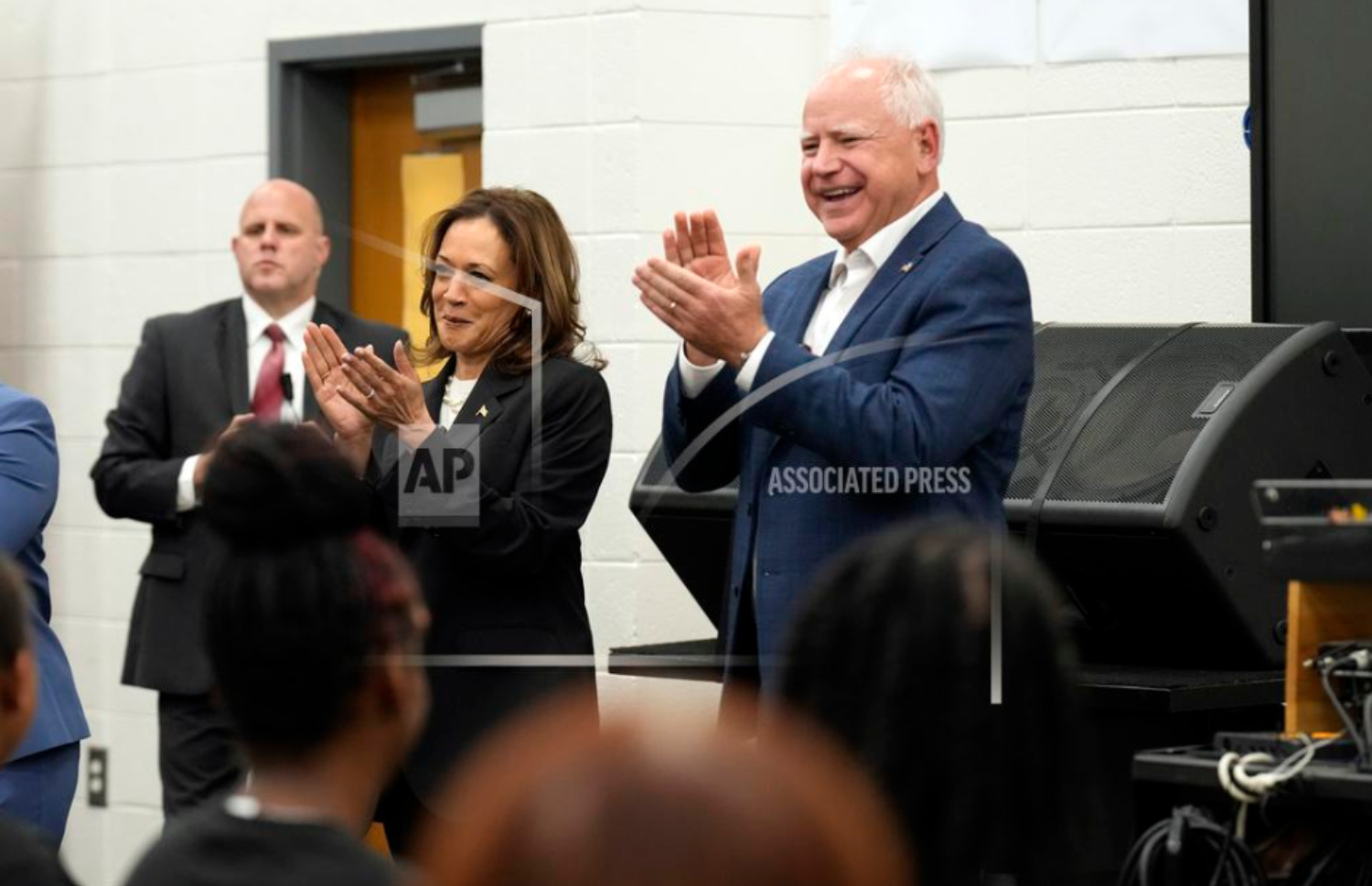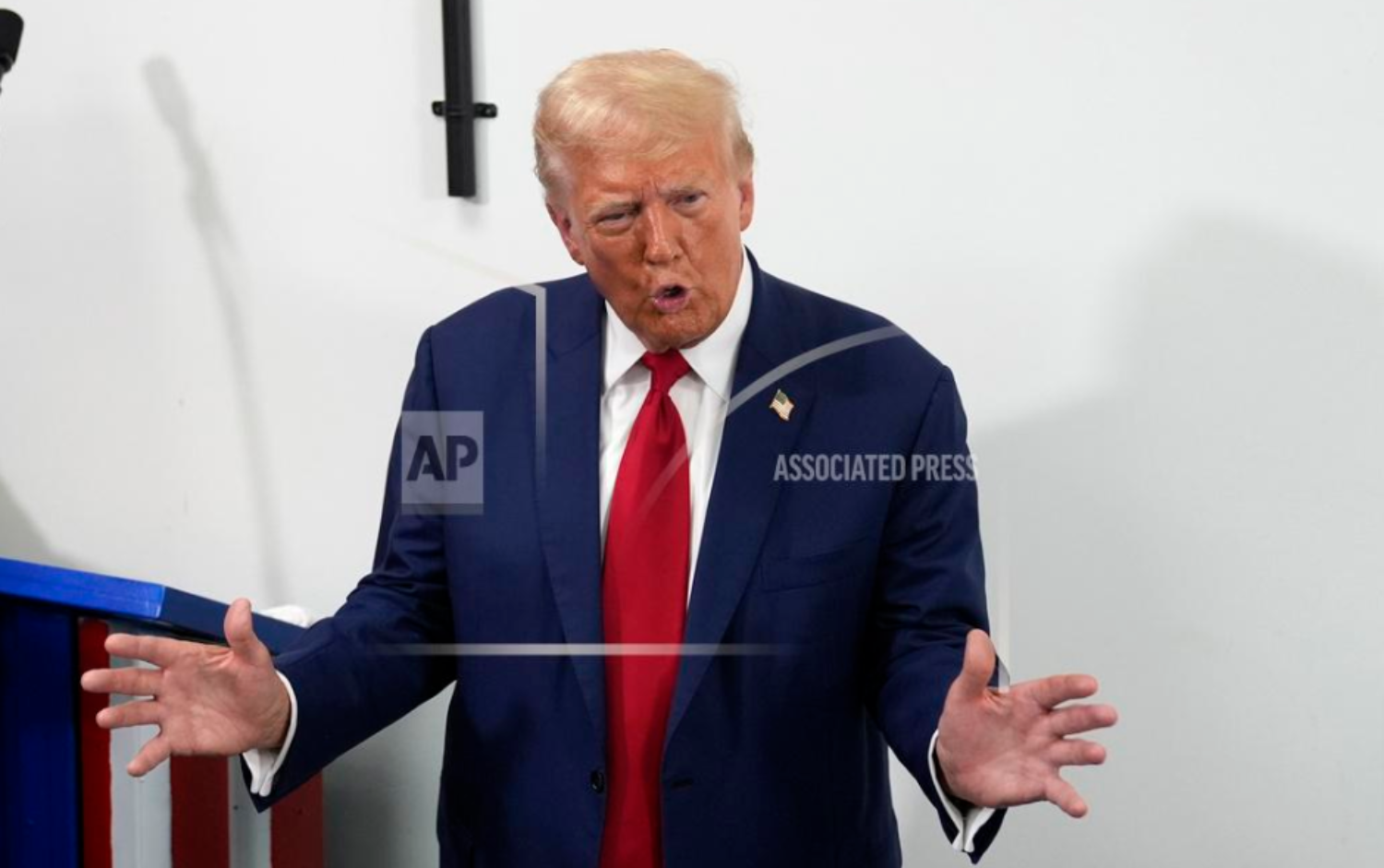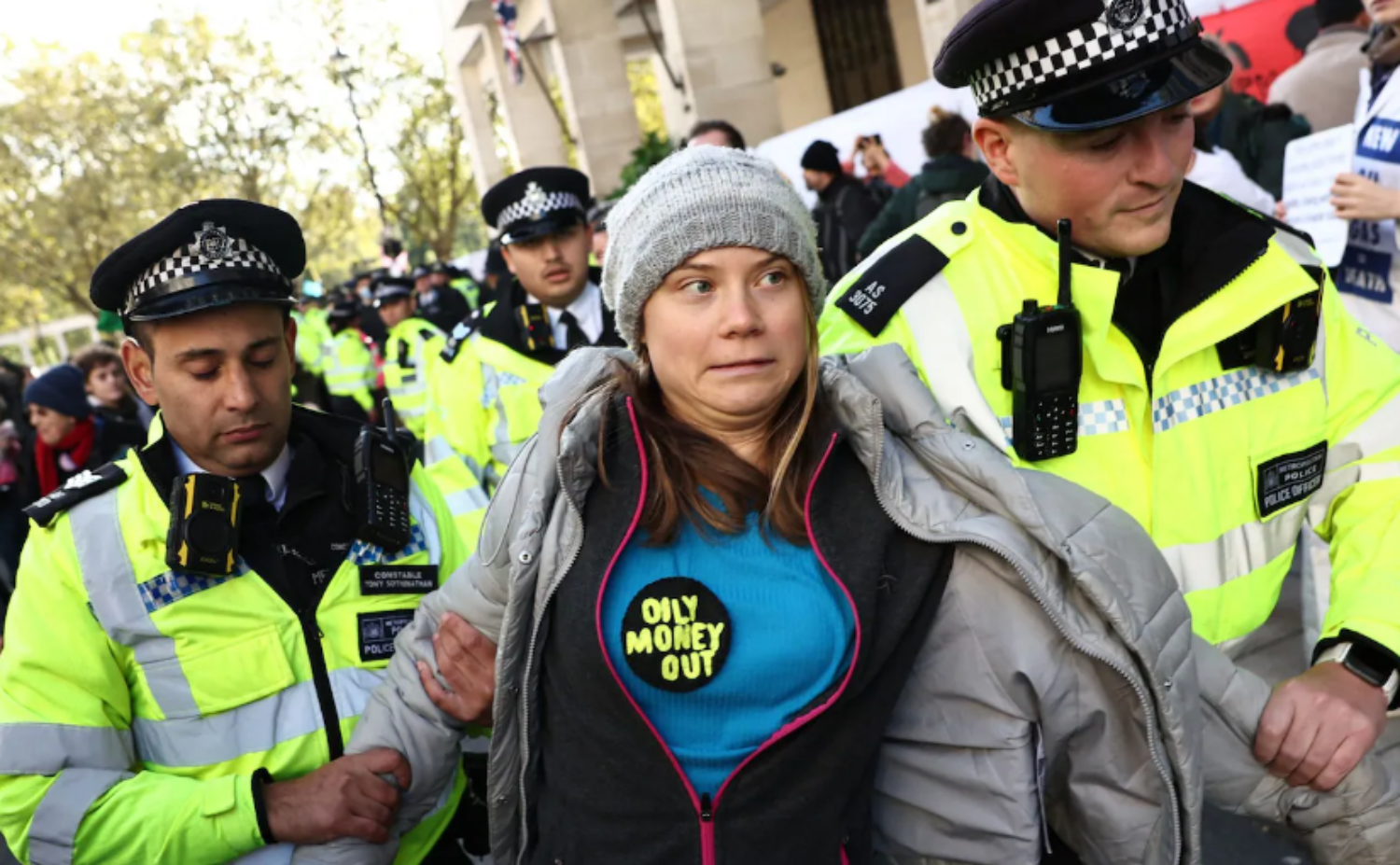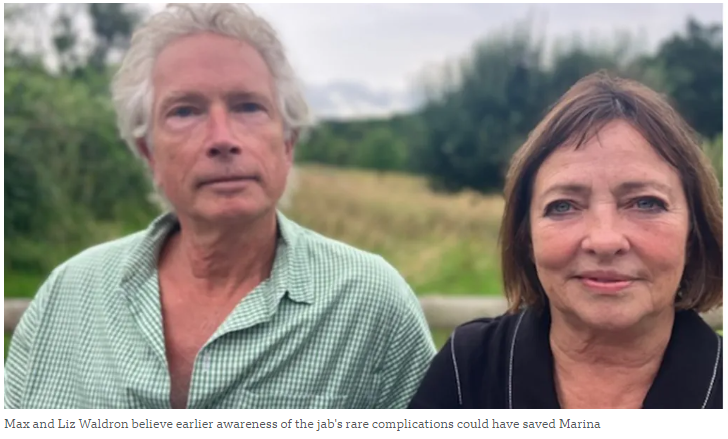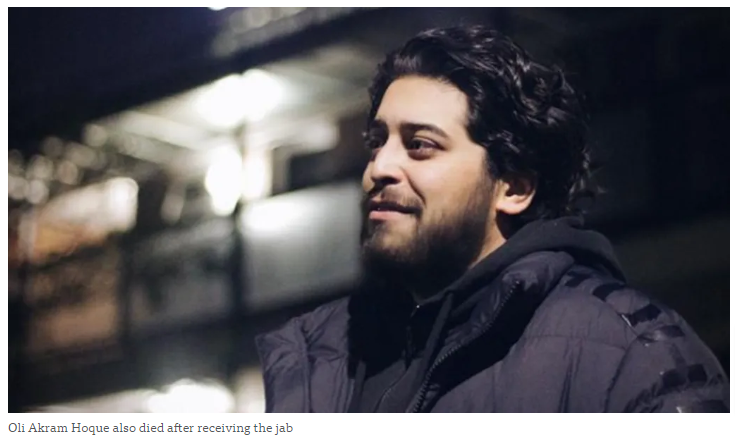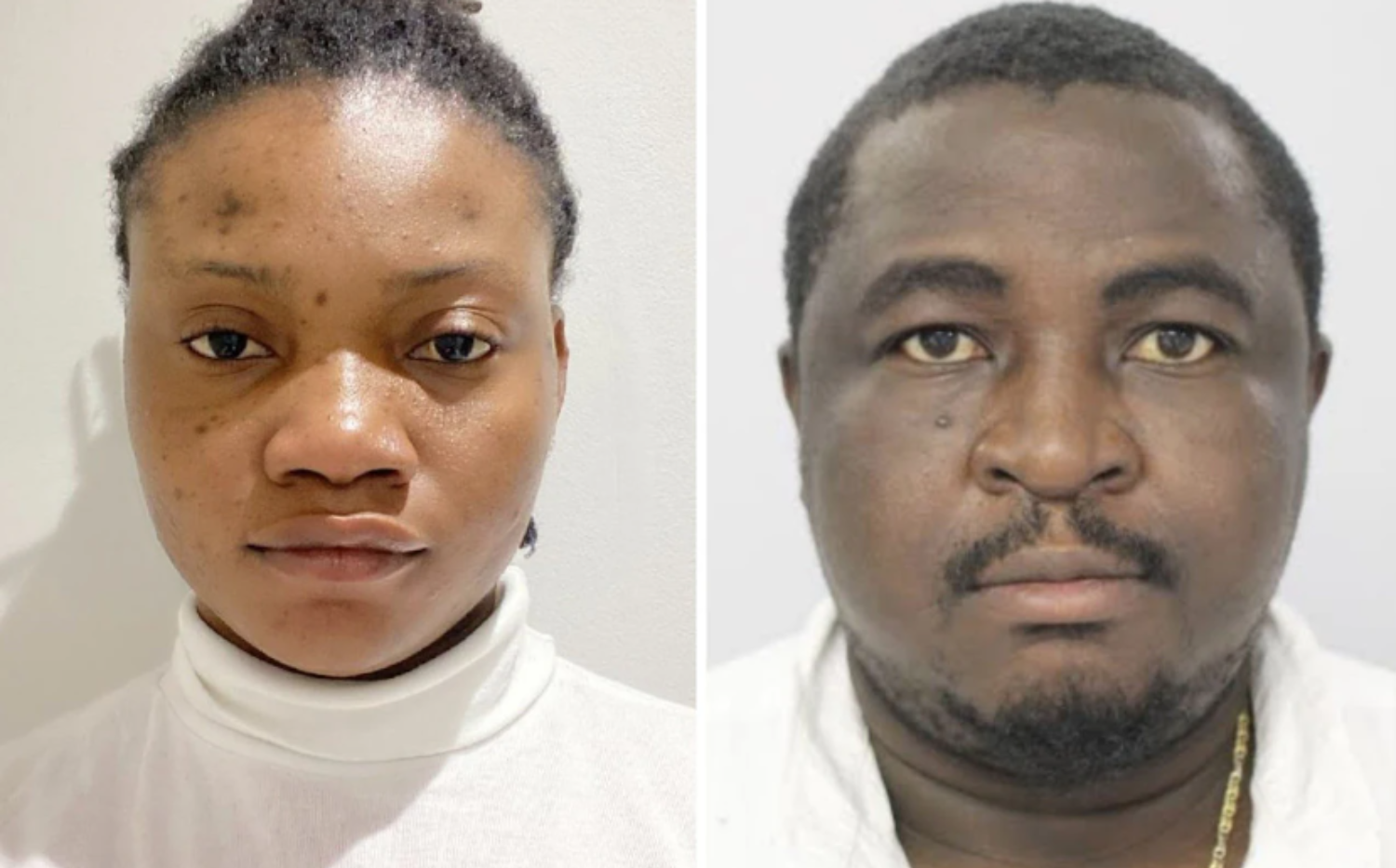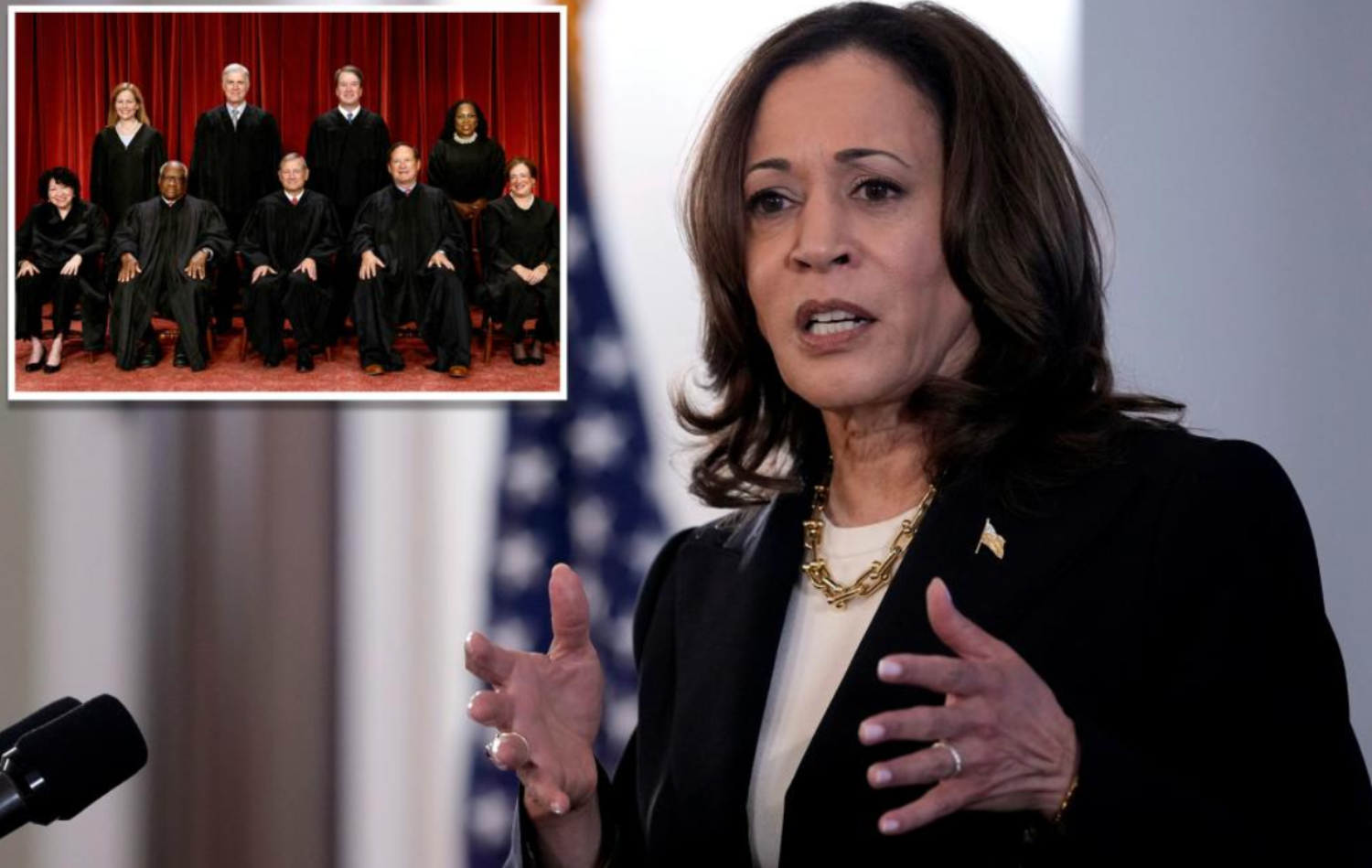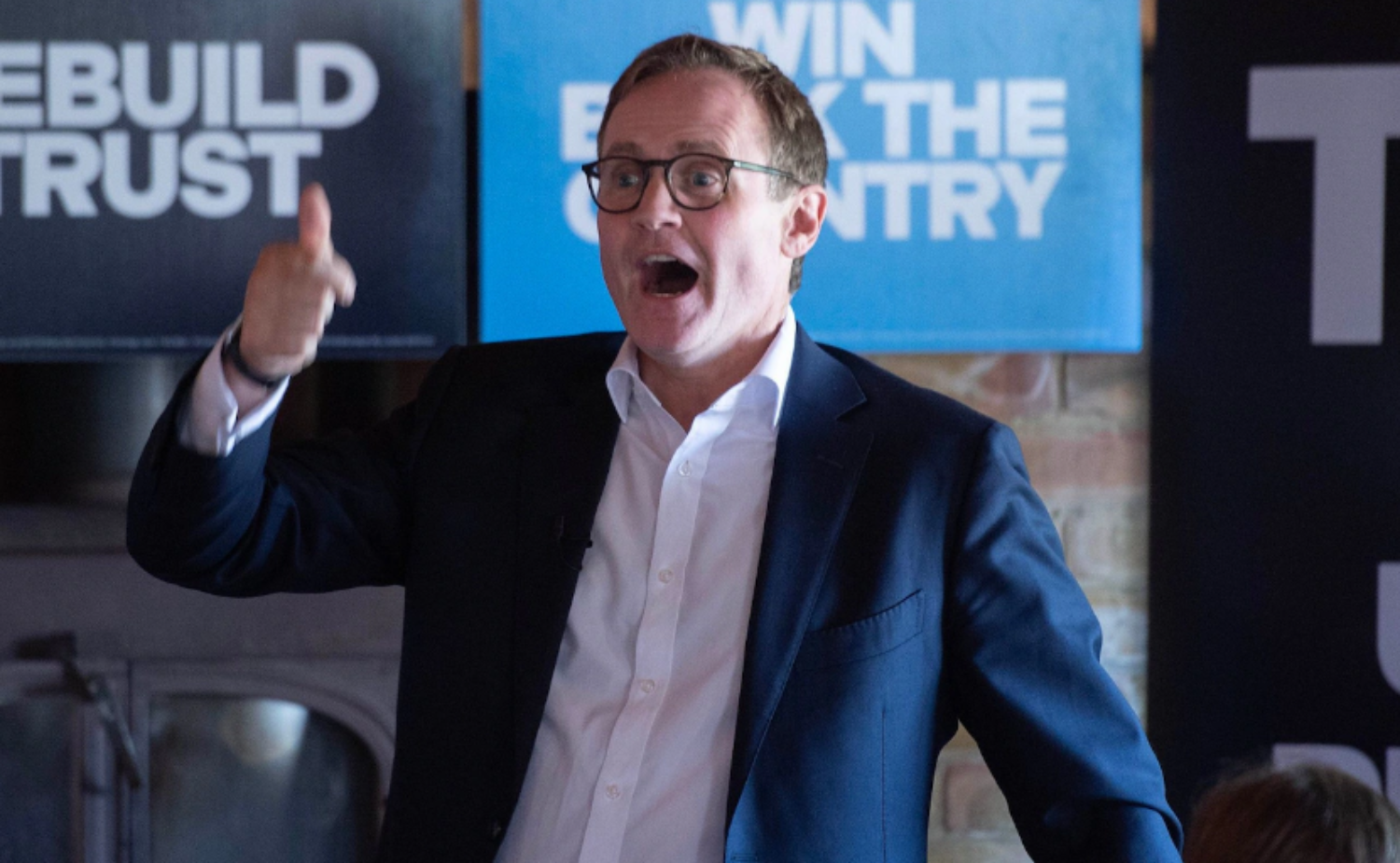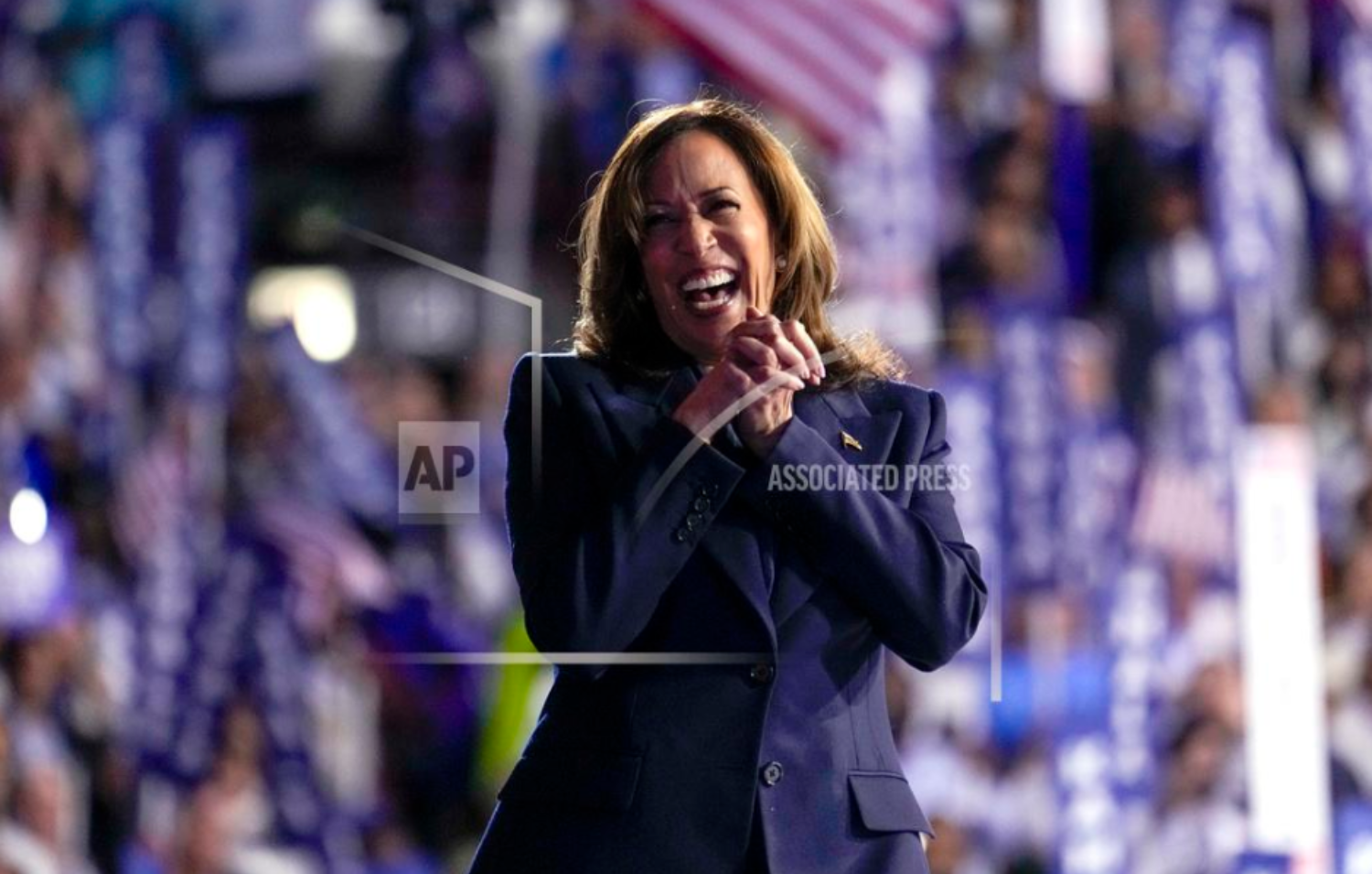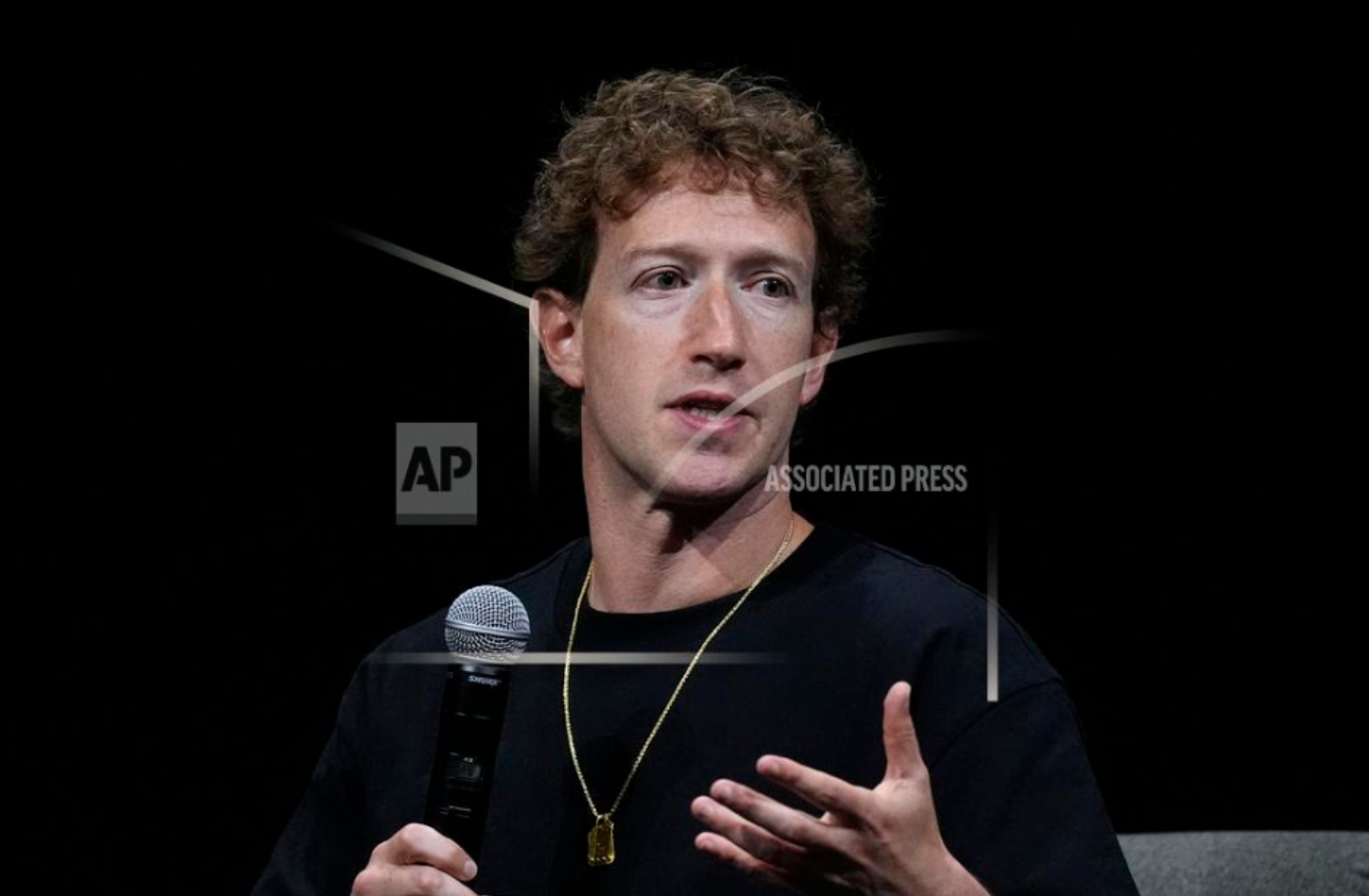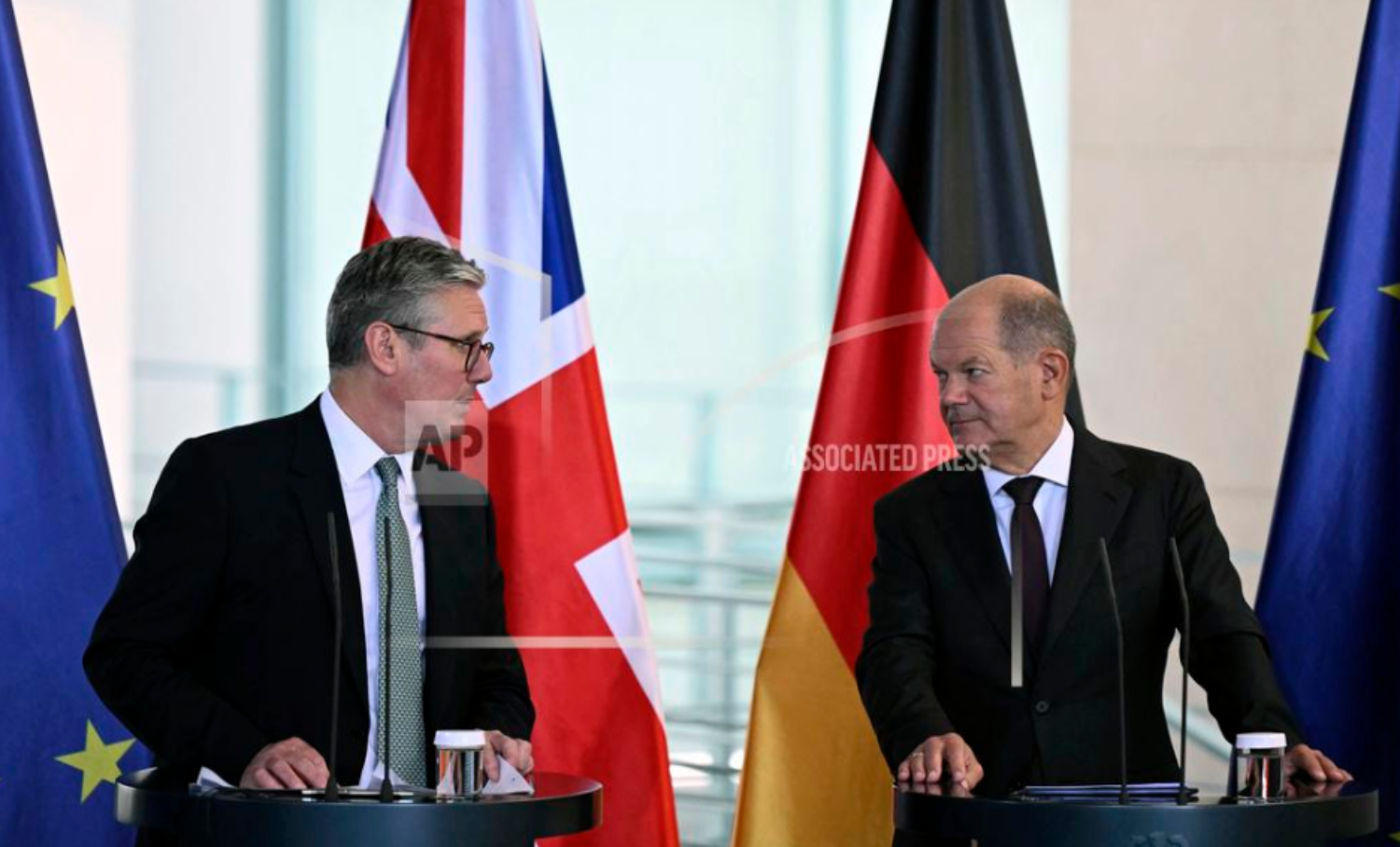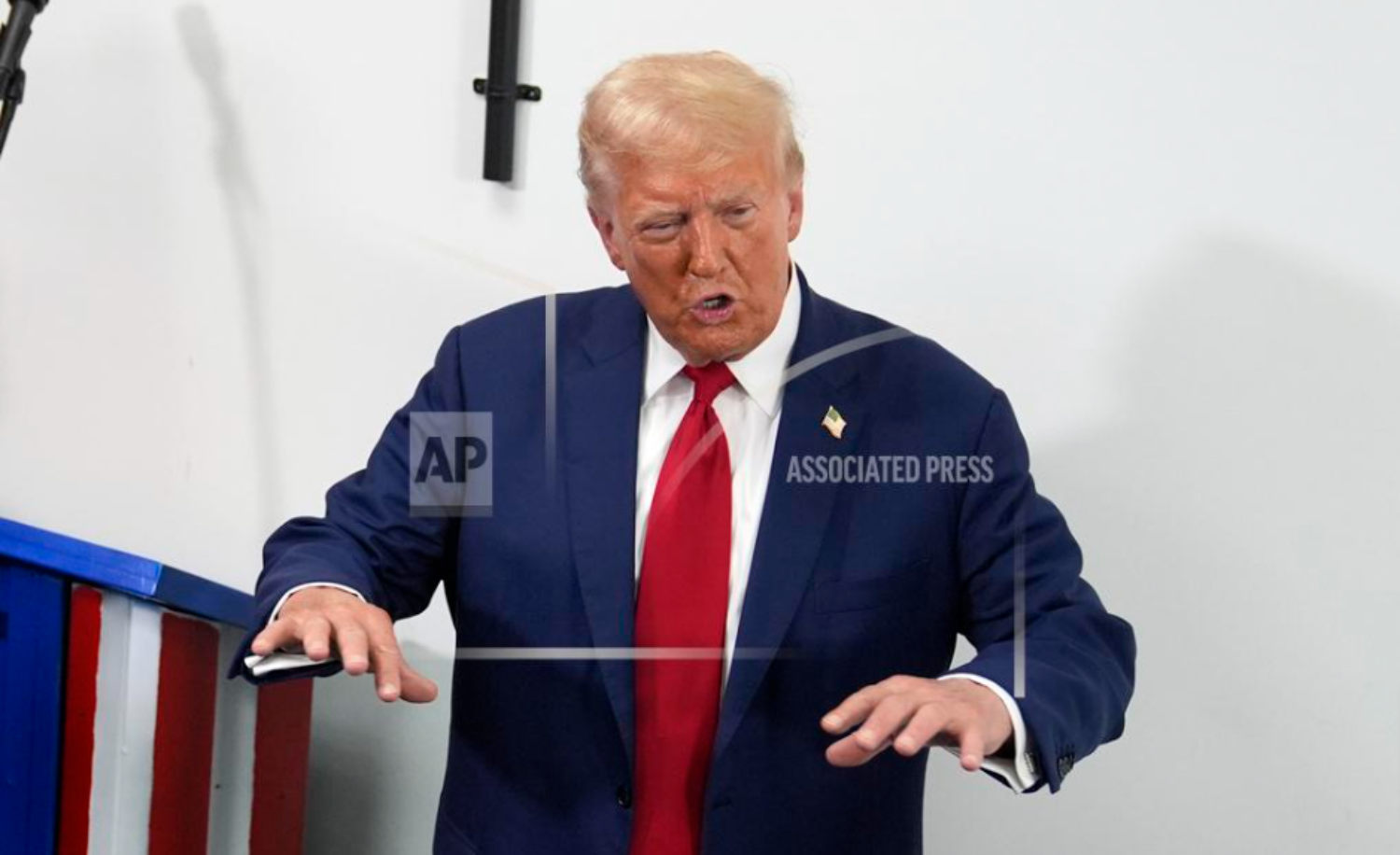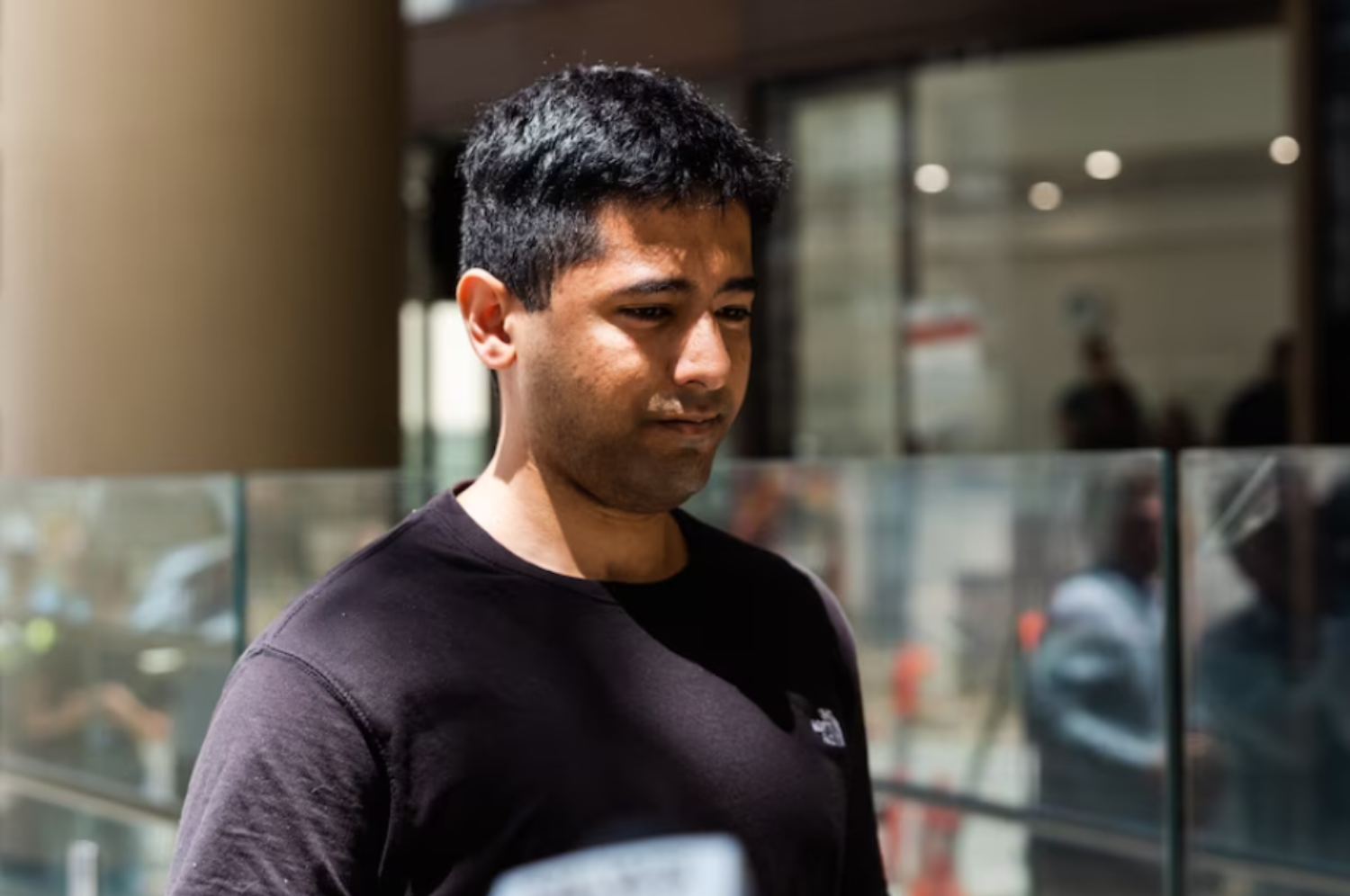-
Posts
10,735 -
Joined
-
Last visited
Content Type
Events
Forums
Downloads
Quizzes
Gallery
Blogs
Everything posted by Social Media
-
Vice President Kamala Harris enters the 2024 presidential race with a distinct advantage: she is neither Joe Biden nor Donald Trump. Before Biden announced he would not seek reelection on July 21, the prospect of a rematch between the two aging political giants left voters uninspired. Americans craved an alternative, regardless of party lines. Harris’s candidacy brings a fresh dynamic, fueled by the element of surprise, the allure of change, Trump’s resistance to adapt, rapid Democratic unity, media support, and the possibility of reassembling the Obama-era coalition of hope and optimism. These factors have given Harris significant momentum that might carry her to victory on November 5. If current polling trends hold, Harris could narrowly win the election, leaving Trump on the losing side. But Trump never loses, or at least, he never admits to it. Should he lose, the aftermath would likely mirror the chaos of 2020, complete with wild claims of fraud, cheating, and election interference. Team Trump would flood the airwaves with accusations of a stolen election, judicial manipulation, and rigged voting machines, pushing legal battles potentially all the way to the Supreme Court. This spectacle would be closely watched by America’s adversaries, looking for signs of domestic instability and possible national security vulnerabilities. However, beyond the immediate fallout, a Trump loss would almost certainly trigger a civil war within the Republican Party. This conflict would pit Trump’s loyalists against those desperate to move beyond the Trump era and reclaim the White House in 2028 without a Trump on the ticket. For many within the GOP, Trumpism represents a political dead-end, characterized by a shrinking voter base and a tarnished brand. The transformation of the GOP into the “Trumplican Party” began in 2016. After Trump’s surprise victory, those Republicans who had supported other candidates were purged, resigned in protest, or reluctantly fell in line. Following Trump’s defeat in 2020, questioning his claims of victory or distancing oneself from his actions on January 6 became acts of disloyalty. Even supporting an alternative candidate in 2024 was seen as a betrayal. Trump’s dominance within the party is unparalleled in modern American politics, with his family firmly entrenched in GOP leadership. Lara Trump, his daughter-in-law and co-chair of the Republican National Committee, openly stated in February that “Every single penny will go to the number one and the only job of the RNC — that is electing Donald J. Trump as president of the United States.” This admission did not sit well with down-ballot candidates and party officials who felt sidelined by the family’s singular focus. If Trump were to lose to Harris, he would likely refuse to relinquish his hold on the party. Trump’s identity is inseparable from the Republican brand, unlike Biden, who has never been the singular face of the Democratic Party. Moving beyond the Trump era without a Trump family member would require a seismic shift within the GOP. Potential new leaders of a post-Trump GOP face a challenging landscape. Names like former UN Ambassador Nikki Haley, Florida Governor Ron DeSantis, and Senator Marco Rubio often surface, each envisioning themselves as the future of the party. Another rising star is Georgia Governor Brian Kemp, whose contentious history with Trump could empower him to lead a post-Trump GOP. But new leaders would also have to contend with entrenched Trump loyalists like Representatives Matt Gaetz and Marjorie Taylor Greene. Credit: Hill 2024-08-31 Get the ASEAN NOW daily NEWSLETTER - Click HERE to subscribe
-
Less than a year after gray wolves were reintroduced into the wild in Colorado, state officials are now taking steps to relocate the first breeding pack, known as the Copper Creek pack, following reports of livestock attacks. The decision, announced by Colorado Parks and Wildlife (CPW) on Tuesday, involves moving two of the 10 wolves originally released, along with the three pups they had this year. This move comes as a potential setback for Colorado’s ambitious reintroduction program, a contentious effort narrowly approved by a 2020 referendum. Marc Bekoff, a behavioral ecologist and professor emeritus of ecology and evolutionary biology at the University of Colorado, Boulder, warned that relocating the wolves could disrupt the pack’s stability. Bekoff explained that the wolves were originally taken from their home in Oregon and needed time to adapt to their new environment. He expressed concern that relocating the pack, especially if done by trapping individual wolves, could lead to the dissolution of the group. “There’s some good scientific evidence that breaking up a pack, especially removing the leader, can lead to the dissolution of the group,” Bekoff said. He emphasized the importance of maintaining the integrity of the pack and warned that any intrusion at this early stage could be “really damaging.” Bekoff called the Copper Creek pack “the promise for the future of Colorado wolves” and expressed dismay that human intervention was already threatening the program’s success. “My concern is that the wolves haven’t had time to adapt, habituate,” he said. “People might disagree with me, but this is really a sign that maybe Colorado isn’t ready for wolves.” Credit: NYT 2024-08-31 Get the ASEAN NOW daily NEWSLETTER - Click HERE to subscribe
-
- 1
-

-
Comment on moderation removed @Cameroni
-
Post removed @Cameroni making unsubstaniated claims on imaginery Ukraine war crimes. Please adhere to the forum rules in the World News topics: "Any alleged factual claims must be supported by a valid link to an approved credible source." An additional post making unsubstaniated by the same poster has been removed. Any more and it will be more than posts removed.
-
Speaking with CNN’s Dana Bash, Harris emphasized that while her perspectives on certain policies have changed, her core values have remained steadfast. This interview offered a rare and detailed insight into Harris’s approach as she vies for the presidency, outlining her vision and responding to scrutiny over her past policy stances. Harris candidly acknowledged that her role as vice president has offered her a broader perspective on some of the country’s most pressing issues, which has influenced her positions. She stressed that her values remain unchanged, even as her policy views have shifted. “I think the most important and most significant aspect of my policy perspective and decisions is my values have not changed,” Harris stated. She elaborated on this by referencing her commitment to addressing the climate crisis, a stance she has consistently held throughout her career. “You mentioned the Green New Deal. I have always believed – and I have worked on it – that the climate crisis is real, that it is an urgent matter to which we should apply metrics that include holding ourselves to deadlines around time.” Despite this, Harris’s campaign later clarified that she no longer supports the Green New Deal, a broad proposal to combat climate change that was first introduced in 2019. This marks a departure from her earlier position during a 2019 climate crisis town hall hosted by CNN, where she had strongly advocated for a federal ban on fracking, pledging to implement such a ban on her first day in office. However, by the time she became Biden’s running mate, Harris had moved away from that stance, even casting a tie-breaking vote to expand fracking leases. During the interview, Harris pointed to the Biden administration’s Inflation Reduction Act as a testament to her commitment to combating climate change. This act, she noted, provided record investments in green energy and climate initiatives. “We have set goals for the United States of America and by extension, the globe, around when we should meet certain standards for reduction of greenhouse gas emissions, as an example. That value has not changed,” she said. Harris further explained that she believes it is possible to grow a thriving clean energy economy without banning fracking, reflecting a more nuanced view than her earlier stance. On the topic of immigration, Harris referenced her tenure as California attorney general, where she prosecuted gangs involved in cross-border trafficking, as evidence of her consistent values. “My values have not changed. So that is the reality of it. And four years of being vice president, I’ll tell you, one of the aspects, to your point, is traveling the country extensively,” she said, highlighting her extensive travel across the U.S. during her vice presidency, including 17 visits to Georgia alone. She emphasized the importance of building consensus and finding common ground to solve complex problems, an approach she plans to continue if elected president. Harris also addressed other key issues during the interview, including her potential cabinet selections and her approach to the economy. She revealed that she would consider appointing a Republican to her cabinet if elected, signaling her commitment to diversity of opinion and bipartisan cooperation. “I think it’s important to have people at the table when some of the most important decisions are being made that have different views, different experiences. And I think it would be to the benefit of the American public to have a member of my Cabinet who was a Republican,” she said. This approach revives a tradition of appointing members of the opposing party to the cabinet, a practice not followed by either Trump or Biden. In discussing her economic policies, Harris reiterated her focus on strengthening the middle class and bringing down costs for essential goods and services such as food, housing, and childcare. She pointed to her economic plan, which includes measures to combat price gouging and increase the construction of affordable housing, as key components of her strategy. However, when pressed by Bash on why these proposals had not been fully implemented during the Biden administration, Harris defended the administration’s track record, citing efforts to contain inflation, reduce prescription drug costs, and cut taxes for families. “There’s more to do, but that’s good work,” she stated. Harris also touched on her relationship with President Joe Biden, particularly in the context of his decision to withdraw from the 2020 presidential race. She recalled the moment Biden informed her of his decision, describing it as a pivotal moment in their partnership. “It was Joe Biden, and he told me what he had decided to do. And I asked him, ‘Are you sure?’ And he said, ‘Yes,’” Harris recounted, adding that her first thoughts were with Biden rather than herself. The interview also saw Harris address the scrutiny of her racial identity, dismissing Donald Trump’s comments that she “happened to turn Black” as part of the “same old, tired playbook.” Harris, who rarely highlights the historic nature of her candidacy on the campaign trail, acknowledged the significance of her position when reflecting on a photograph of her young grandniece watching her speak at the Democratic National Convention. “I am running because I believe that I am the best person to do this job at this moment for all Americans, regardless of race and gender,” she said, though she admitted being deeply touched by the image. As the race progresses, Harris aims to solidify her policy positions and address voter concerns about her past reversals. Her interview with CNN represents a significant step in clarifying her vision for the presidency and her approach to governance. With 68 days remaining until the election, Harris is focused on making her case to the American people, promising a presidency that prioritizes unity, economic strength, and a commitment to addressing the pressing issues of the day. Credit: CNN 2024-08-30 Get the ASEAN NOW daily NEWSLETTER - Click HERE to subscribe
-
As Germany braces for key state elections in the former East Germany, the country’s lingering divisions and the rise of political extremism have taken center stage. Anna Wenske, a 69-year-old who worked for decades at East Germany’s national theater, encapsulates the sentiments of many in the region. “After reunification, everything went kaput,” she lamented, reflecting on losing her job and savings and her long struggle to regain stability. Today, Wenske resents what she sees as an unfair preference for refugees over native Germans. “Too many people exist on this planet, and everyone wants to come to us,” she said. “We tell everyone welcome, and we have nothing left for ourselves.” Wenske’s views on the war in Ukraine further highlight a broader skepticism. While she acknowledges that Russian President Vladimir Putin lied about not planning to invade, her distrust extends to the United States. In the upcoming state elections in Thuringia, Wenske plans to vote for the far-right Alternative for Germany (AfD) party, known for its ethnonationalist stance and controversial language reminiscent of the Nazi era. The AfD’s state branch is classified as right-wing extremist by German intelligence. However, Wenske is also drawn to the new Sahra Wagenknecht Alliance (BSW), founded by a former communist leader. Although the BSW disavows Nazism and supports the Constitution, its positions closely align with those of the AfD, appealing to disenchanted voters like Wenske. “When I listen to Sahra, somehow she touches me,” Wenske said. The elections in Thuringia, Saxony, and Brandenburg—three states in the former East Germany—are seen as a bellwether for the federal elections in 2025, if the current government survives that long. Chancellor Olaf Scholz’s three-party coalition is facing deep unpopularity, with the Greens, one of the coalition partners, openly criticizing the government’s lack of direction. But these elections also underscore the persistent divide between eastern and western Germany, where extremist parties like the AfD have made significant inroads, shifting the national political discourse, especially on migration and support for Ukraine. The growing influence of the AfD and the BSW has been amplified by recent events, such as a deadly knife attack in Solingen by a Syrian refugee, which killed three people and wounded eight. This incident has fueled anti-immigrant rhetoric from both the AfD and Wagenknecht’s party, prompting Scholz to promise stricter deportation measures and call for tougher European laws on asylum. The issues of refugees, migration, and violent crime have deepened the sense of alienation in the east, where the legacy of East German sovereignty and anti-Western sentiment remains strong. For many, this history is a source of pride and identity. Even today, the east feels like a “country within a country,” akin to Sicily in Italy or Flanders in Belgium. Many easterners feel mocked and colonized by the west after reunification, and a deep-rooted sympathy for Russia persists, fueled by a perception that the United States still dominates German foreign policy. The AfD, with its anti-European Union and anti-NATO rhetoric, has found a receptive audience in the east. The party’s campaign posters featuring German and Russian flags with slogans like “The East does it!” reflect a desire to break away from the West. The BSW, while less radical in its approach, also emphasizes German interests and criticizes NATO’s role in international conflicts. The popularity of these parties is expected to be significant in the upcoming elections, with polls predicting that extremist parties on both the right and left could capture up to 65 percent of the vote in Thuringia, over 50 percent in Saxony, and about 45 percent in Brandenburg. The AfD leads in all three states, reflecting the shrinking center in German politics. Despite the growing extremism, not everyone in the east is ready to embrace fringe parties. Jens Wickmann, a 56-year-old elevator technician from Nohra, shares many of Wenske’s concerns but refuses to support the AfD. “I don’t want Björn Höcke,” he said, referring to the controversial AfD leader in Thuringia, whom many consider a neo-Nazi. Wickmann plans to vote for the center-right Christian Democratic Union (CDU), which remains the main opposition party in Berlin. The situation presents a challenging landscape for Scholz’s Social Democratic Party, which is polling at a dismal 6 percent in both Thuringia and Saxony. In fact, none of the parties in Scholz’s coalition—including the Free Democrats and the Greens—are expected to secure the 5 percent needed to enter the state parliaments. The political dynamics in the east, shaped by a complex history of Nazi rule and 40 years of Soviet influence, continue to confound Berlin. The east’s economic struggles, coupled with a lingering sense of having been sidelined and misunderstood by the west, have created fertile ground for extremist narratives. Steffen Mau, a sociologist at Humboldt University, argues that unification has not brought the assimilation many hoped for but has instead reinforced deep societal divides. “It was an illusion that unification would bring together two things artificially separated,” Mau said, noting that the east remains relatively poor and ideologically fragmented. The east’s political volatility may offer a glimpse into Germany’s future, according to Thorsten Benner of the Global Public Policy Institute in Berlin. The BSW’s recent emergence complicates the landscape further. Formed by former members of The Left party, the BSW lacks the AfD’s extremist stigma, making it an appealing alternative for voters disillusioned with traditional parties. While the AfD is shunned by all mainstream parties, the BSW’s presence could make it a potential coalition partner, forcing the CDU to navigate difficult choices in the east. Mario Voigt, the CDU’s lead candidate in Thuringia, has focused his campaign on pragmatic issues like energy prices, education, and migration. “We want to frame the race around issues here that matter for the next five years and tell people not to fall into protest votes,” Voigt said. The CDU’s cautious approach reflects a broader strategy among mainstream parties to contain extremist movements by addressing their core issues without compromising democratic values. Daniela Schwarzer, a political scientist and board member of the Bertelsmann Foundation, emphasized the need to prevent these parties from gaining further traction. “The hope is to demystify them before they get into office and contain them to the regional level,” she said. However, even regional success would represent a significant breakthrough for the AfD or BSW, potentially normalizing a more extreme brand of politics in Germany. As the east rises, so too does the challenge of bridging a country still grappling with its past and uncertain about its future. Credit: NYT 2024-08-30 Get the ASEAN NOW daily NEWSLETTER - Click HERE to subscribe
-
While Vladimir Putin's invasion of Ukraine has attracted global condemnation, a less-discussed aspect of Russia's foreign policy is its methodical approach to cultivating client states around NATO's borders to destabilize the region and spread turmoil. This policy is evident in countries such as Syria, Venezuela, Sudan, and Libya, where Russia leverages natural resources like gold and oil to counteract international sanctions, often exacerbating internal conflicts to provoke illegal migration. Currently, Libya represents a critical case that could significantly impact global stability in a way not seen since the ousting of Muammar Gaddafi in 2011. As the world focuses on the tragedies in Ukraine and Gaza, Libya remains under the radar of many governments. This oversight is dangerous, given Libya's pivotal role in contributing to broader instability across Africa, particularly on NATO's southern flank. Libya’s collusion with Russia in economic, military, and diplomatic spheres has had ripple effects on other African nations such as Sudan and Mali, which have suffered considerably from Libya's ongoing turmoil. In recent years, successive governments in Tripoli have grappled with challenges posed by corrupt gangs, rival administrations, warlords, and sporadic warfare. The emergence of General Khalifa Haftar as a dominant force in eastern Libya and his deepening alliance with Russian President Vladimir Putin threatens to derail Libya’s fragile democracy. Backed by Russian support, Haftar has asserted control over much of eastern and southern Libya, including critical oil fields. Although a fragile ceasefire has held since his failed 2019 attempt to seize Tripoli, tensions remain high. An agreement with Tripoli allowed for the appointment of a consensus candidate to run Libya’s National Oil Corporation (NOC), benefiting ruling factions on both sides. However, Haftar has firmly established himself as a dominant figure in Libya, thanks to Russian support. Russia has provided Haftar with the necessary resources to reignite hostilities between his Libyan National Army (LNA) and the government in Tripoli. In close coordination with the Kremlin, Haftar has allowed Russian forces, particularly from the notorious Wagner Group, to operate in his territory, using Libya as a launchpad for expansion into sub-Saharan Africa. Reports suggest that trucks carrying Russian fuel, controlled by Haftar’s forces, have passed through his checkpoints, supporting Russian operations in countries like Chad, Mali, and Sudan. It was revealed in April that Russia had transported fighters from Libya to Niger to negotiate with the ruling junta, which also involved severing Niger's ties with Ukraine. This is not an isolated incident. Russia has also exploited Libya to support Sudan’s “Rapid Support Forces” (RSF) amid the ongoing civil war by supplying weapons, ammunition, and fuel across porous borders. The recent brutal massacre of civilians by RSF forces in a central Sudanese village underscores the confidence and impunity with which these paramilitary forces operate. For Western nations, these developments jeopardize years of diplomatic engagement and security cooperation with African countries. As internal conflicts increase and governments are toppled, Russia positions itself as a more appealing ally to these nations, driving a wedge between Africa and the West. Beyond diplomatic and military threats, Russian influence in the region is increasingly becoming an economic issue. With Libya's lucrative oil fields under Haftar's control, a new threat to European energy supplies has emerged. In recent weeks, Libya's largest oil field, El Sharara, was shut down by LNA soldiers, and several other oil fields in the country are also at risk of imminent shutdown. The United Nations-backed government in Tripoli appears powerless in this situation, and the National Oil Corporation (NOC), headed by Ferhat Bengdara, has failed to effectively respond to these looming shutdowns. The NOC remained silent for days as LNA forces took control of the El Sharara oil field, only declaring force majeure after considerable delay. This has further damaged the reputation of the Tripoli government and raised serious concerns about corruption and clientelism within the NOC. Given that oil and gas constitute 95% of Libya's exports, a functional and transparent NOC is essential for any hope of transitioning to a stable democracy. Recognizing these threats, the newly formed Labour government in the United Kingdom must demonstrate leadership. As part of a proposed reset with the European Union, the Foreign Secretary should lead efforts with France and Italy to form a new global coalition aimed at curbing Russian influence and preventing sanctions evasion across North Africa. Immediate steps should include halting Haftar’s rapid advance in Libya, showing real commitment toward achieving peace in Sudan, and reforming critical yet corrupt institutions. By disrupting Putin's supply lines, other nations susceptible to Russian influence can be protected, and Russia's broader influence can be contained. If such a coalition is not formed quickly to counter Putin's ambitions along Europe's southern frontier, we may soon face a reality where Russia dominates much of the Mediterranean and the Red Sea. Credit: Daily Telegraph 2024-08-30 Get the ASEAN NOW daily NEWSLETTER - Click HERE to subscribe
-
Just three weeks ago, soon after Kamala Harris was formally selected as the Democratic presidential nominee, she was asked about her plans for a sit-down interview. Standing on the airport tarmac in Detroit, she assured reporters, "I’ve talked to my team. I want us to get an interview scheduled before the end of the month." On Thursday night, Harris is set to fulfill that promise, albeit barely. She will appear in her first major interview with CNN's Dana Bash, scheduled for prime-time at 9:00 PM EDT. However, Harris will not be conducting this interview alone. She will be accompanied by her running mate, Minnesota Governor Tim Walz. This decision to bring Walz along for her first significant public engagement raises questions about her confidence and strategy as the Democratic nominee. While Harris has answered the lingering question of when she would have an in-depth discussion of her candidacy and agenda, her decision to have a joint appearance may give critics more ammunition. Some argue that after sidestepping the intense scrutiny of a long primary season, Harris is now avoiding the rigorous examination that comes with a solo interview. Scott Jennings, a former special assistant to President George W. Bush, criticized Harris's approach, saying, "I think it’s incredibly weak, weak sauce, to show up with your running mate," adding that she had a "troubling lack of confidence in her own political ability." Yet, Harris's supporters believe that her cautious pace is justified, given the unprecedented nature of her candidacy following President Joe Biden's sudden withdrawal from the race. Peter Giangreco, a Democratic strategist based in Chicago, argued that the timeline has been strategic: "Win the nomination, pick your nominee, lay out your economic plan, do your convention and now do some sit-downs and amplify that." This slow-burn approach allows Harris to build momentum without overwhelming voters too quickly. Joint interviews involving both members of a presidential ticket are not uncommon. Barack Obama and Joe Biden sat down for an interview with "60 Minutes" after Biden was named as the vice-presidential nominee in 2008. Similarly, Hillary Clinton and her running mate Tim Kaine participated in a joint interview in 2016. Harris and Biden themselves did a joint appearance on ABC’s "20/20" in 2020. More recently, following the announcement of JD Vance as his running mate, Donald Trump and Vance appeared together on Fox News. However, since Biden passed the torch to Harris late last month, she has kept most of her press engagements to carefully orchestrated settings. Her last formal interview was over two months ago, on June 24. Since then, her sporadic interactions with the press have been limited to short answers to questions shouted at her during campaign stops. This lack of engagement has done little to counter Republican accusations that she is avoiding scrutiny of her record and policy positions. Her critics have been relentless, particularly those within the Republican ranks who have made their own rounds of media appearances over the past month. "She’s not smart enough to do a news conference," former President Donald Trump stated bluntly earlier this month. "She won’t do interviews with friendly people because she can’t do better than Biden." Despite these criticisms, Harris has gained significant traction since entering the presidential race. However, as Republican strategist and Trump critic Chip Felkel points out, she now needs to "reinforce" that momentum. "She’s gotta get out there," Felkel stated. "She’s got to show that she can think under pressure, because that’s part of what the president has to do." By opting for a joint interview, the Harris campaign seems to have calculated that the pressures and tough questions will be shared between her and Walz. This approach also ensures they are unified in their policy explanations. According to Giangreco, the Democratic strategist, Harris and Walz will likely focus on their economic plan—a strategy to reduce the cost of living and provide economic security, which Harris first announced at a rally in Raleigh, North Carolina, two weeks ago. Giangreco also suggested that a joint interview provides a chance to highlight the differences between Walz and his Republican counterpart, JD Vance, whom he described as "weird." Yet, the true impact of Harris and Walz's joint appearance will not be known until after the interview airs. Harris's track record with high-pressure interviews is mixed. In a 2021 interview with NBC’s Lester Holt, she struggled to answer questions about her role in the administration's border policy—a performance widely considered a failure. In contrast, she appeared calm and collected during a more recent one-on-one interview with CNN’s Anderson Cooper, where she defended Biden’s performance amid a heated debate. If this upcoming joint interview on CNN mirrors her more successful media appearances, the Harris campaign hopes it will silence some of the criticism. "They just need to be able to say ‘See, we told you,’” Felkel said, “And then keep moving." In bringing Walz along for this high-stakes interview, Harris may be taking a cautious but strategic step forward. The decision underscores her attempt to both manage public perception and maintain a unified front with her running mate. Whether this approach will help or hinder her campaign remains to be seen, but it certainly adds another layer of intrigue to her candidacy and the 2024 presidential race. Credit: BBC 2024-08-30 Get the ASEAN NOW daily NEWSLETTER - Click HERE to subscribe
-
Questions about the safety and reliability of Tesla’s “Full Self-Driving” system are mounting, with multiple incidents and troubling experiences reported by users. William Stein, a technology analyst at Truist Securities, has personally tested Tesla’s self-driving technology three times in the past four months, responding to Elon Musk’s repeated invitations to try the latest versions of the system. Despite the company’s claims that a Tesla equipped with Full Self-Driving can travel from point to point with minimal human intervention, Stein’s experiences have consistently highlighted the system’s flaws, making unsafe and even illegal maneuvers during each test drive. In his most recent test earlier this month, Stein was accompanied by his 16-year-old son, who was left “terrified” by the car’s unpredictable behavior. Stein’s experiences, coupled with a deadly crash in the Seattle area in April involving a Tesla using Full Self-Driving that killed a motorcyclist, have drawn increased scrutiny from federal regulators. The National Highway Traffic Safety Administration (NHTSA) has been investigating Tesla’s automated driving systems for more than two years due to a series of accidents that raised concerns about safety. These incidents have intensified doubts among experts and industry observers about the viability of Tesla’s autonomous system and whether it can ever operate safely on a large scale. Stein expressed skepticism about Musk’s ambitious timeline, stating that Tesla is unlikely to deploy a fleet of autonomous robotaxis by next year, a goal Musk has repeatedly promised. The timing of these safety concerns is critical for Tesla, as the company is nearing a key phase in its autonomous vehicle strategy. Musk has told investors that Full Self-Driving could surpass human driving safety standards by the end of this year or early next year. Furthermore, Tesla is set to unveil a vehicle specifically designed as a robotaxi in less than two months. Musk has maintained that for Tesla to deploy these robotaxis, the company must demonstrate to regulators that its system can drive more safely than human drivers. According to federal regulations, Tesla’s vehicles must meet national safety standards before they can operate autonomously on public roads. Musk has presented data showing the number of miles driven per crash for Tesla’s less sophisticated Autopilot system. However, safety experts have criticized this data, arguing it is misleading because it only accounts for crashes severe enough to trigger airbag deployment, without considering how often human drivers had to intervene to avoid a collision. Currently, Tesla’s Full Self-Driving system is being used on public roads by approximately 500,000 Tesla owners, representing slightly more than one in five Teslas in use today. Many of these drivers paid over $8,000 for the optional system, despite the company’s warnings that cars equipped with Full Self-Driving cannot truly drive themselves and that motorists must remain vigilant and ready to intervene at any time. Tesla also monitors driver behavior, suspending access to Full Self-Driving for those who fail to properly supervise the system. Recently, Tesla began referring to the system as “Full Self-Driving (Supervised),” acknowledging that human oversight is still crucial. Musk has admitted that his past predictions about autonomous driving have been overly optimistic. In 2019, he promised a fleet of autonomous vehicles by the end of 2020, a goal that remains unfulfilled five years later. Many experts who closely monitor the development of autonomous driving technology doubt that Tesla’s system can function reliably across the United States as promised. Michael Brooks, executive director of the Center for Auto Safety, stated bluntly, “It’s not even close, and it’s not going to be next year.” Stein’s most recent test drive took place in a Tesla Model 3, which he picked up from a Tesla showroom in Westchester County, just north of New York City. The Model 3, Tesla’s most affordable vehicle, was equipped with the latest version of Full Self-Driving software, which Musk claims utilizes artificial intelligence to manage steering and pedal control. While the ride initially felt smooth and more human-like compared to previous versions, Stein reported that within a short drive of less than 10 miles, the car made a left turn from a through lane while running a red light, a maneuver that Stein described as “stunning.” Although there was little traffic at the time and the maneuver did not seem immediately dangerous, Stein later found himself intervening when the vehicle drove down the center of a parkway, straddling two lanes of traffic moving in the same direction. In a report to investors, Stein emphasized that the latest version of Full Self-Driving does not fulfill Musk’s promise of achieving true autonomy, nor does it appear to be approaching the capabilities required for robotaxi deployment. Stein’s earlier test drives in April and July also revealed unexpected and unsafe behavior from Tesla vehicles. Despite these concerns, Tesla has not responded to requests for comment on these incidents. While Stein believes Tesla’s driving technology will eventually prove profitable, he does not foresee a future where fully autonomous robotaxis with no driver and a passenger in the back seat will be on the roads anytime soon. He predicts significant delays or restrictions on where these vehicles can operate. Stein noted that there is often a substantial gap between Musk’s statements and the reality of what is achievable. Many Tesla enthusiasts have shared videos on social media of their cars driving themselves without human intervention, but these videos rarely provide a comprehensive view of how the system performs over extended periods. Other videos have captured alarming instances of dangerous behavior. Alain Kornhauser, who leads autonomous vehicle research at Princeton University, shared his own experiences after borrowing a Tesla from a friend for two weeks. While he found the car’s ability to detect pedestrians and other vehicles impressive, Kornhauser still had to intervene on several occasions when the car made unsettling maneuvers. He emphasized that Full Self-Driving is not yet ready to operate without human oversight in all settings, stating, “This thing is not at a point where it can go anywhere.” Kornhauser does believe that Tesla’s autonomous system could work effectively in smaller, controlled areas within cities where detailed maps could guide the vehicles. He questioned why Musk hasn’t pursued this more incremental approach to deployment, suggesting that offering rides in limited areas could provide significant mobility benefits to the public. For years, experts have pointed out that Tesla’s reliance on cameras and computer vision for navigation has inherent limitations. Cameras are prone to failure in adverse weather conditions and low-light environments, making it challenging for the system to consistently identify and respond to objects in its path. In contrast, other companies developing autonomous robotaxi technology, such as Alphabet Inc.'s Waymo and General Motors’ Cruise, use a combination of cameras, radar, and lidar sensors to enhance detection accuracy. Missy Cummings, a professor of engineering and computing at George Mason University, underscored the importance of combining multiple sensor types, arguing, “If you can’t see the world correctly, you can’t plan and move and actuate to the world correctly. Cars can’t do it with vision only.” Even vehicles equipped with radar and lidar face challenges, highlighting broader safety concerns not just for Tesla, but for the entire autonomous vehicle industry. Phil Koopman, a professor at Carnegie Mellon University specializing in autonomous vehicle safety, noted that it will take many more years before autonomous vehicles powered solely by artificial intelligence can handle the complexities of real-world driving conditions. “Machine learning has no common sense and learns narrowly from a huge number of examples,” Koopman said. “If the computer driver gets into a situation it has not been taught about, it is prone to crashing.” The fatal crash in April near Seattle has further fueled concerns. Authorities reported that a Tesla using Full Self-Driving struck and killed a motorcyclist in Snohomish County. The Tesla driver, who has not been charged, admitted to using Full Self-Driving and looking at his phone when the car rear-ended the motorcyclist, who was pronounced dead at the scene. The NHTSA is currently reviewing information about the crash from Tesla and local law enforcement. The agency is also aware of Stein’s troubling experiences with Full Self-Driving. The NHTSA is investigating whether a Tesla recall earlier this year, intended to enhance the vehicle’s driver monitoring system, was effective. The agency also pushed Tesla to recall Full Self-Driving in 2023 because the system could, under “certain rare circumstances,” violate traffic laws, increasing the risk of a crash. The NHTSA has not yet confirmed whether the recall has successfully addressed these issues. As Tesla’s electric vehicle sales have stagnated in recent months, despite significant price reductions, Musk has urged investors to view the company as a leader in robotics and artificial intelligence, rather than just a car manufacturer. Tesla has been working on its Full Self-Driving system since at least 2015, but progress has been slow and fraught with challenges. During a recent earnings call, Musk remarked, “I recommend anyone who doesn’t believe that Tesla will solve vehicle autonomy should not hold Tesla stock.” Stein, however, advised investors to critically evaluate Full Self-Driving’s performance, noting that Tesla’s most established artificial intelligence project, which is already generating revenue and being used in real-world conditions, still has a long way to go before it can be considered truly autonomous and safe. The growing list of safety issues, fatal accidents, and missed deadlines underscores the significant hurdles Tesla faces as it strives to make Full Self-Driving a viable and widespread reality. Credit: ABC News 2024-08-30 Get the ASEAN NOW daily NEWSLETTER - Click HERE to subscribe
-
Former President Donald Trump has adopted a new campaign strategy, aiming to shift the blame for the chaotic U.S. withdrawal from Afghanistan onto Vice President Kamala Harris. This tactic targets Harris as a scapegoat for the failures surrounding the withdrawal, an event that marked the end of America’s longest war but also left a dark mark on President Joe Biden’s term. The Afghanistan exit remains a contentious issue between Republicans and Democrats, who continue to trade blame over which administration should be held accountable for the lack of planning and execution of the drawdown of U.S. troops after 20 years of military operations. The withdrawal culminated in the collapse of the U.S.-backed Afghan government as the Taliban regained control of Kabul in August 2021. The U.S. exit was marred by chaotic scenes at Kabul airport, a devastating terrorist attack that killed 13 U.S. soldiers, and a humanitarian crisis that endangered thousands of Afghan allies and other vulnerable individuals. The Trump campaign has sought to distance itself from these events by drawing attention to an April 2021 interview with Vice President Harris. In this interview, she mentioned that she was the last person in the room with President Biden when he made the decision to withdraw from Afghanistan and that she was "comfortable" with the decision. Chris Tuttle, a senior fellow at the Council on Foreign Relations, called it "a perfect political attack," noting, "I think the campaign feels like it’s a good time to remind the general public of what happened and the chaos that ensued as a good line of attack." However, critics of Trump, including Democrats, highlight his decision to bypass the Afghan government and negotiate directly with the Taliban to set a specific timeline for the U.S. troop withdrawal. They argue that this move left the Biden administration with few viable options when it came to developing and executing a withdrawal strategy. A former senior officer who served in Afghanistan described the withdrawal as "a catastrophe, across the board, a civil, military, right down to tactical, catastrophe," and accused Trump of trying to "bathe in the blood of those 13 troops." Yet, as Tuttle pointed out, the complexities of this situation often fail to engage the public in an election season. "When it comes down to a political campaign, if you’re explaining, you’re losing," he said, underscoring the difficulty for Biden and Harris to recover from the negative optics of the withdrawal. Trump and his supporters have attempted to frame him as a strong leader who deters violence through assertive rhetoric and decisive action, contrasting this with his history of disparaging remarks about the military, wounded soldiers, and those killed in action. As part of this narrative, the Trump campaign organized a call with family members of three U.S. service members killed in the Abbey Gate bombing on the third anniversary of the attack. Trump also joined other Gold Star families at a wreath-laying ceremony at Arlington National Cemetery. Meanwhile, Republicans and some families of fallen soldiers have criticized Harris and Biden for what they perceive as a lack of proper acknowledgment for the soldiers' sacrifices. Cheryl Juels, whose niece, Marine Corps Sgt. Nicole Gee, was killed in Kabul, expressed her belief that "With Trump, we knew our kids were safe." She added that Trump, as a New Yorker, "wasn’t going to deal with anybody hurting our men and women, or he would have, you know, made ’em pay for it." Mark Schmitz, the father of Marine Corps Lance Cpl. Jared Schmitz, who was also killed in the Abbey Gate bombing, criticized the Biden-Harris administration for avoiding accountability. "I think that this [Biden] administration has shown that they’ve treated the withdrawal from Afghanistan like the plague," he said. In contrast to Trump's public engagement, Biden and Harris issued separate statements to honor the 13 soldiers killed, as well as the 2,461 who died and the 20,744 wounded over the course of the 20-year war. When asked why neither Biden nor Harris hosted or attended any public events to honor the fallen soldiers, White House national security communications adviser John Kirby said that the administration was focused on working behind the scenes. "There are many ways that we as a nation and our leaders can observe the third anniversary of Abbey Gate," Kirby said, emphasizing the quiet, ongoing efforts to support the families of the fallen. It remains unclear whether Trump’s strategy of positioning himself as a strong, decisive leader on foreign policy will resonate with undecided voters. While some former aides have expressed concerns about his tendency to be easily manipulated and enamored with autocrats, Trump’s supporters argue that he can still make sound decisions that disrupt the status quo. On CBS’s "Face The Nation," Lt. Gen. H.R. McMaster, who served as Trump’s national security adviser, commented on Trump's decision-making process: "He can make really sound decisions and disrupt things that need to be disrupted in terms of foreign policy and national security, but oftentimes struggles to hang on to those decisions and see them through." Despite Trump’s efforts, Harris has been gaining ground in polls against him. While foreign policy typically falls behind other key issues like the economy, immigration, and reproductive rights, voters still consider how the U.S. should position itself on the global stage. According to polling by the Chicago Council on Global Affairs, a majority of Americans favor strengthening or expanding U.S. alliances abroad. However, Trump supporters are more inclined to believe that the U.S. should prioritize its national interests, even when allies disagree, as shown in April polling by the Pew Research Center. Allison Jaslow, a veteran of the Iraq War and CEO of the nonprofit Iraq and Afghanistan Veterans of America (IAVA), downplayed Trump’s attacks on Harris over the Afghanistan withdrawal. "I have to think that the attack falls flat on many people," she said. "I just don’t think that you can fully shift blame onto another administration when you yourself share a portion of blame for how things were executed in Afghanistan." IAVA, which represents around 425,000 members, continues to monitor how candidates discuss their future policies. The organization advocates for a repeal or reform of the 2001 and 2002 Authorizations for Use of Military Force (AUMF), which allowed for U.S. military engagement in Afghanistan and Iraq and are still used for ongoing counter-terrorism operations. Jaslow emphasized the need for candidates to demonstrate a commitment to reconsidering these authorizations and highlighted the importance of addressing the needs of Afghan allies left behind in the withdrawal. "We still owe it to our Afghan allies, the interpreters and other folks who helped us on the ground, to help them find safe harbor," she said, adding that failing to do so could complicate America's ability to engage effectively in future conflicts. As the political landscape continues to evolve, Trump's efforts to rewrite the narrative on Afghanistan will be scrutinized by both his supporters and critics. Whether this strategy will effectively bolster his position remains to be seen, but it undoubtedly adds another layer of complexity to the upcoming election. Credit: The Hill 2024-08-30 Get the ASEAN NOW daily NEWSLETTER - Click HERE to subscribe
-
Luna, a 32-year-old who describes herself as a devoted “MAGA Trump supporter” from Wisconsin, has been a prominent voice on X, formerly Twitter, since joining the platform in March. Her profile, filled with posts supporting the “Make America Great Again” movement, praising Donald Trump’s re-election campaign, and spreading conspiracy theories about Vice President Kamala Harris, has garnered nearly 30,000 followers. Addressing her followers as “patriots,” Luna’s presence has become a digital megaphone for Trump supporters. “Would You Support Trump Being The President forever? I wonder if you all support Trump for president just like me,” she posted on July 29, along with a selfie in a white bikini, urging her followers to respond with an American flag emoji if they agreed. This post alone reached around 54,000 views. Neriah Tellerup Andersen, a 22-year-old influencer from Copenhagen, whose photos have been used by another fake pro-Trump account, described feeling violated by the experience. “I feel used, like someone is taking something from me. It’s my image. I don’t want to think people think that I do what those profiles are sometimes promoting.” Kamilla Broberg, another influencer from Copenhagen, shares this sense of violation. A trained psychologist who posts about fitness and lifestyle, Broberg was disturbed to see her images manipulated, including one instance where a bikini photo was edited to make her appear naked. “That was the worst,” she said. Despite X’s policies against misleading and deceptive identities, these fake accounts persist. The platform’s guidelines clearly prohibit impersonation and the unauthorized use of images, yet enforcement remains inconsistent. Meanwhile, the debate between Musk and European regulators over X’s compliance with the Digital Services Act has escalated. The law aims to protect users from deceitful impersonation and other harmful online behaviors. In an open letter, EU commissioner Thierry Breton warned Musk to prevent the amplification of harmful content, or face potential penalties. Musk’s response was dismissive, underscoring the tension between platform regulation and free speech. The orchestrated nature of these fake profiles suggests a coordinated effort to manipulate public opinion. Experts, including Emily Horne, a former Twitter policy leader, suggest that the sophistication of the campaign points to the possibility of state actor involvement. “This could be a state actor. The level of sophistication indicates it could be any of the hostile state actors, including Russia, Iran and China,” she noted. Former Facebook policy director Katie Harbath added that the ability to buy verification marks has compromised the platform’s integrity, making it easier for misinformation to spread. There is also a gendered element to the way these fake accounts operate, relying on images of women to attract engagement, particularly among young and disaffected men. The use of these stolen photos reflects broader issues of online misogyny and the commodification of women’s bodies without consent. As women like Nederlof, Maric, Andersen, and Broberg navigate the emotional toll of seeing their identities stolen and manipulated, the broader political implications continue to unfold. With the battle over women’s rights playing a significant role in the 2024 U.S. election, the misuse of women’s images adds another layer of complexity to an already contentious political landscape. For Nederlof, the ongoing theft of her photos feels like a constant invasion of her privacy. “Every day, my face and my body, my pictures, my identity is stolen, and that makes me very mad. That is definitely not me, definitely it was never me, and it will never be me, and (people) have to unfollow” the fake account. She and other women caught in this web of misinformation are left to wonder when, or if, there will be stronger safeguards to protect their identities in an increasingly unregulated digital world. Credit: CNN 2024-08-30 Get the ASEAN NOW daily NEWSLETTER - Click HERE to subscribe
-
Police forces around the world have come together in a series of covert operations aimed at dismantling one of West Africa’s most notorious criminal organizations—Black Axe. The latest in these efforts, Operation Jackal III, saw heavily armed officers conducting raids in 21 countries between April and July 2024. This extensive mission, coordinated by Interpol, resulted in the arrest of 300 individuals connected to Black Axe and other affiliated groups. Interpol hailed the operation as a “major blow” to the Nigerian crime network but cautioned that Black Axe’s vast international reach and technological sophistication continue to make it a global threat. In a striking example of the group’s scale, Canadian authorities uncovered a money-laundering scheme linked to Black Axe worth more than $5 billion (£3.8 billion) in 2017. Tomonobu Kaya, a senior official at Interpol’s Financial Crime and Anti-Corruption Centre, described the group as highly organized and structured, emphasizing the ongoing challenges law enforcement faces in combating them. A 2022 Interpol report highlighted the scale of the threat posed by Black Axe and similar groups, noting that they are responsible for the majority of the world’s cyber-enabled financial fraud, as well as numerous other serious crimes. According to Kaya, advancements in money-transfer software and cryptocurrency have provided Black Axe with new tools to facilitate their illicit activities. “These criminal syndicates are early adopters of new technologies,” he explained. “A lot of fintech developments make it really easy to illegally move money around the world.” Operation Jackal III, which had been years in the making, led to the seizure of $3 million in illegal assets and the freezing of over 700 bank accounts. Many members of Black Axe are university-educated individuals who are often recruited during their time in school. The organization, which started as an ultra-violent cult, has evolved into a secretive criminal network with global operations in trafficking, prostitution, and murder. Cybercrime remains its largest source of revenue, with Black Axe targeting individuals and businesses worldwide through sophisticated online scams. Multiple “Jackal” police operations have been conducted since 2022, resulting in the arrest of dozens of Black Axe members and the seizure of electronic devices during transnational raids. These actions have enabled Interpol to compile a vast intelligence database, which is shared with law enforcement agencies across its 196 member countries. “We need to have data and to collate our findings from these countries to help build a picture of their modus operandi,” Kaya said. However, despite these efforts, some experts argue that not enough is being done to address the root causes of these crime syndicates in West Africa. Dr. Oluwole Ojewale, West Africa Regional Coordinator from the Institute for Security Studies, believes that the focus should shift towards prevention rather than solely relying on direct operations against these groups. He pointed out that Nigeria, one of Africa’s largest economies, has been rocked by widespread anti-corruption protests in recent weeks. The country is home to an estimated 87 million people living below the poverty line, according to the World Bank, and has become the main recruitment ground for Black Axe. In response to the ongoing threat, Interpol has begun training exercises with key Nigerian stakeholders and police officials. However, systemic corruption and alleged collusion between Black Axe and local authorities present significant obstacles. “It is the politicians who are actually arming these boys,” said Dr. Ojewale, highlighting how poor governance and societal pressures drive many young Nigerians to join the criminal network. Despite Black Axe’s current global reach, the origins of Interpol’s Jackal Operations can be traced back to Ireland. In 2020, a series of police raids by the Garda National Economic Crime Bureau (GNECB) led to the arrest of several Black Axe members and exposed a far more extensive network operating in the country. “They were very under the radar, very low-key,” said Michael Cryan, detective superintendent at the GNECB, who spearheaded the initial operation. He described the extent of money laundering through Ireland as “astronomical,” revealing that the police identified around 1,000 people with links to Black Axe and made hundreds of arrests for fraud and cybercrime. Cryan noted that modern financial crimes are far more sophisticated than traditional bank robberies, which are now conducted digitally. “Bank robberies are now done with laptops—they’re far more sophisticated,” he said. Cryan estimated that €200 million ($220 million; £170 million) had been stolen online in Ireland over the past five years, and that only represents about 20% of the reported cybercrimes. “This is not typical or ordinary crime… People who make decisions need to know how serious this is,” he warned. Further police operations in Ireland in November 2023 highlighted the growing role of cryptocurrency in Black Axe’s money-laundering schemes. More than €1 million in crypto-assets were seized during one raid, underscoring the challenges law enforcement faces in tracking and seizing digital currencies. In an effort to counter these technological innovations, Interpol has deployed its own advanced systems, including the Global Rapid Intervention of Payments (I-GRIP). This tool enables authorities in member countries to freeze bank accounts across the globe with unprecedented speed and was recently used to stop a $40 million scam targeting a business in Singapore. Kaya emphasized that such technology is crucial in making it harder for criminals to transfer money across borders undetected. “If we can gather this data, we can take action,” he said, pointing to the ongoing efforts to amass and share intelligence on Black Axe and other West African syndicates among police forces worldwide. However, the battle is far from over, as law enforcement continues to navigate the complex and evolving landscape of international organized crime, where technological advancements can both aid and hinder the pursuit of justice. The story of Operation Jackal III and the broader struggle against Black Axe serves as a stark reminder of the global scale and sophistication of modern criminal networks. As law enforcement agencies deploy new technologies to fight back, they must also address the underlying social and economic factors that fuel these syndicates, ensuring that the battle against international crime is fought on all fronts. Graphic BBC Documentary on Black Axe: Nigeria’s Mafia Cult Credit: BBC 2024-08-30 Get the ASEAN NOW daily NEWSLETTER - Click HERE to subscribe
-
The Church of England has intervened to prevent the transformation of a disused Grade II-listed church into a mosque, using a legal clause to halt the conversion. An Islamic charity recently obtained planning permission to convert the Georgian church of St John’s in Hanley, Staffordshire, into a Muslim place of worship. However, this decision was met with resistance from the Church of England, which exercised a restrictive covenant that prohibits the building from being used for worship by any religion other than Christianity. The restrictive covenant was originally placed on the church when the Diocese of Lichfield sold the building in 2009. Constructed in 1788, St John’s had fallen into disuse since the 1980s due to concerns about its structural integrity. After years of neglect, the church was repurposed as a café and antiques center before being sold to the Zamir Foundation. The charity was granted permission by Stoke-on-Trent City Council on August 15 to turn the church into a mosque. The Zamir Foundation’s plans for the site were ambitious, including the installation of a museum, a multi-faith library, and a women’s-only gym alongside the mosque. Despite these community-focused plans, the Church of England’s stance was firm. A spokesman for the Church Commissioners, who manage the investments and assets of the Anglican church, stated that the church’s owners had been informed that the proposed change would not be allowed. “The Church Commissioners are aware that planning permission has been granted for changes to St John’s Hanley,” the spokesman said. “We support former churches being used for community purposes, but a restrictive covenant prohibits the use of the building as a place of worship other than as a church, and the Commissioners have explained this to the owner.” The charity had already begun preliminary work on the site before planning permission was granted. A bulldozer was used to clear and level the grounds for a car park, and internal partition walls and washing facilities were installed. However, these modifications were subsequently removed at the request of the council because the necessary permissions had not been secured at that time. Zabi Zamir, a spokesman for the Zamir Foundation, previously expressed optimism about the planning permission, describing it as a “positive step towards enhancing community services and fostering inclusivity.” However, the charity now faces the reality that the Church of England could take legal action if the restrictive covenant is ignored and the conversion into a mosque proceeds. The case highlights the ongoing debate surrounding the repurposing of historic religious buildings in the UK. Across the country, former churches have been transformed into a wide variety of new uses, some of which bear little resemblance to their original purpose. For example, other former churches now house climbing walls, such as St Marks in Newcastle and St Benedict’s in West Gorton, Manchester. Some have been turned into nightclubs, including the Grade II-listed St Andrew’s in Bournemouth and Salisbury’s Chapel nightclub, which was originally built in the 19th century as a Pentecostal church. The chapel of the former Claybury Asylum in Woodford, North London, now serves as a swimming pool and sauna, while Nottingham’s Grade II-listed High Pavement Chapel was converted into a bar in 1998. The repurposing of religious buildings often sparks controversy, especially when proposals involve significant changes to the original use, such as converting a church into a mosque. While many of these conversions are seen as innovative ways to preserve historic architecture and provide community spaces, they can also clash with the legal and cultural heritage associated with the buildings. The Church of England’s position in this case underscores the complexities involved in balancing the preservation of religious heritage with the evolving needs of diverse communities. Both the Zamir Foundation and Stoke-on-Trent City Council were approached for comment on the matter but have yet to publicly respond. The situation remains tense, with the potential for legal battles ahead if the restrictive covenant is not respected. As communities across the UK continue to find new purposes for historic religious buildings, the case of St John’s Hanley serves as a reminder of the delicate balance between respecting the past and embracing the future. Credit: Daily Telegraph 2024-08-30 Get the ASEAN NOW daily NEWSLETTER - Click HERE to subscribe
-
Yvette Cooper, the Shadow Home Secretary, is set to revive anti-protest laws originally introduced by Suella Braverman. These laws, which were designed to crack down on protest groups like Just Stop Oil, were recently quashed by the High Court after a legal challenge from the civil rights group Liberty. Cooper's move aims to reintroduce the contentious regulations, which could lead to swifter and stricter punishments for activists due to looser definitions of "serious disruption." The original legislation allowed police to impose restrictions on protests when there was merely a "more than minor" hindrance to people's daily lives, lowering the previous threshold that permitted police intervention only when there was a risk of "serious disruption." The new law was introduced through a statutory instrument in the House of Lords after peers had previously rejected the same proposal months earlier in a new public order act. Conventionally, peers do not vote down statutory instruments, allowing this version of the law to come into force. Since the introduction of the looser definition of "serious disruption," hundreds of protesters, including prominent climate activist Greta Thunberg, have been arrested. Liberty won a legal challenge against the Home Office in May, arguing that the regulations were unlawful because they had already been democratically rejected by Parliament a few months earlier. Liberty criticized the government for bringing the law back "via the back door" through "secondary legislation," which allowed less parliamentary scrutiny and debate. The High Court sided with Liberty, finding that the government had failed to conduct a fair consultation process. The court noted that the Home Office had only solicited opinions from those it expected would support the proposed changes, such as the police, while excluding protest groups. The ruling also agreed with Liberty's argument that "more than minor cannot mean serious," effectively nullifying the law under its current wording. Despite this setback, the Home Office has announced its intention to appeal the ruling, expressing concern about the potential impact the judicial review could have on the government’s ability to conduct consultations in the future. If the appeal is successful, the law would be revived, potentially leading to renewed enforcement against protest groups under the more lenient definition of "serious disruption." The government has pledged to carry out a review of protest legislation next year, which could result in further changes. However, the prospect of reviving the law has sparked significant controversy, particularly among Labour politicians who raised concerns about the legislation's potential impact on the right to protest when the party was in opposition. Akiko Hart, the director of Liberty, expressed disappointment over the Home Secretary's decision to continue with the appeal despite the High Court's ruling. She stated, "We are very disappointed that, despite a positive discussion about the impact of the unlawful regulation, the Home Secretary has taken the decision to continue this case. This legislation is undemocratic, unconstitutional and unacceptable. The Home Office’s decision to continue the case shows disregard for the rule of law and completely goes against previous statements from the Government just last month that they would not abuse the use of secondary legislation and that they would promote high standards of governance. With hundreds of people wrongfully arrested and convicted due to this unlawful legislation already, it is not right to continue to carry on with this law that should never have been made in the first place. The only right thing to do would be to quash this legislation once and for all." A spokesperson for the Home Office defended the appeal, stating, "The right to protest is fundamental to our democracy, and all public order legislation must balance this right. However, we disagree with the court’s ruling in this case and have appealed their decision." The outcome of the appeal will determine whether the government can reinstate the more expansive powers for police to curb protests that it initially sought under Suella Braverman. For now, the battle over the future of protest rights in the UK remains highly contentious, with both sides preparing for a potential clash in the courts. Credit: Daily Telegraph 2024-08-30 Get the ASEAN NOW daily NEWSLETTER - Click HERE to subscribe
-
The parents of Marina Waldron, a 21-year-old woman who died after receiving the AstraZeneca Covid-19 vaccine, have accused the NHS of failing to convey known safety warnings about the jab. Their daughter, a budding filmmaker from the Forest of Dean in Gloucestershire, visited the hospital three times with severe headaches in the week leading up to her fatal collapse from a brain hemorrhage in March 2021. Max and Liz Waldron stated that despite Marina's deteriorating condition, A&E doctors seemed unaware of the emerging side effects associated with the vaccine, as well as the warnings that had been issued about them. A second family, who lost their son Oli Akram Hoque to similar complications a few days after Marina, is also calling for systemic changes and accountability. A Department of Health and Social Care (DHSC) spokesperson responded to the accusations by saying, "Throughout the pandemic, the health system responded quickly to reports of extremely rare cases of complications following vaccination." While the Oxford-AstraZeneca Covid vaccine was estimated to have saved millions of lives during the pandemic, it caused rare and sometimes fatal blood clots, as seen in Marina and Oli's cases. A spokesperson for AstraZeneca reiterated that the vaccine had been "recognized by governments around the world" as crucial in helping to bring the pandemic to an end. Marina was just beginning her career in film when she received her first dose of the AstraZeneca jab on 11 March 2021. By 22 March, she had developed a headache and sickness and visited a London hospital, but she was sent home with migraine tablets, despite mentioning that she had recently been vaccinated. Mrs. Waldron, aged 64, recalled that Marina's condition worsened the following day. She visited an A&E department again, only to be discharged with a migraine diagnosis and without undergoing a brain scan. By 27 March, Marina's parents were so alarmed that they took her to A&E in Gloucester themselves. She tragically passed away on 31 March at Southmead Hospital in Bristol after suffering a heart attack and brain hemorrhage. Mrs. Waldron shared the anguish of not being allowed to intervene, saying, "We weren’t able to go in. We weren’t able to say 'don’t you understand she hasn’t drunk or eaten.' They [the hospital] just sent her back. But the next day it was worse, and she started having issues with her arm - she was lifting up her arm and holding it, and that’s when it all went mad." At the inquest in December 2023, a coroner determined that Marina's death had been caused by a combination of factors: intracerebral hemorrhage, cerebral venous sinus thrombosis, and vaccine-induced immune thrombocytopenia and thrombosis due to the AstraZeneca vaccine. While the coroner found that Marina had died from a recognized but extremely rare complication of the AstraZeneca vaccine, he did not find fault with the NHS for failing to diagnose it quickly enough. However, the Waldrons are seeking answers as to why medical professionals were not informed about the risks associated with the vaccine earlier, particularly when other countries were halting its rollout. They question why appropriate diagnostic measures, such as brain scans, were not promptly undertaken. Mrs. Waldron emphasized that an earlier awareness could have made a critical difference in Marina’s case, stating, "It was only after a couple of days in hospital that they took us to one side and said 'we think it’s the vaccine,' and we said 'we've been banging on about this vaccine right from the beginning and every single person said it wasn’t anything to do with that.' They didn’t even bother to scan her. There was a possibility, a chance she could have been saved." Their solicitor, Lynda Reynolds from the Hugh James practice, highlighted that there appeared to have been a gap between advice being published on the government's public website on 18 March—advising people with concerns to attend A&E—and the date, 7 April, when clinicians were finally informed to investigate any potential symptoms. Reynolds pointed out, "Unfortunately for Marina, she fell in that gap. She's not the only one." The question remains whether doctors could have been warned earlier. On 15 March 2021, Germany, France, and Italy halted their AstraZeneca rollouts following several incidents involving blood clots. However, the World Health Organization did not yet see enough evidence to establish a link. Just a few days later, on 18 March, the UK identified five cases of blood clots in the brain, one of them fatal. Despite these alarming reports, the NHS continued administering the vaccine to young people, although it advised anyone with a headache lasting more than four days after vaccination to seek medical advice. On 25 March, NHS Blood and Transplant issued an alert to specialist staff after observing a rise in organ donors dying from blood clots, stating, "I would ask you to be alert to the possibility of this syndrome in any patient within 28 days of receiving Covid vaccination with thrombosis or unexplained thrombocytopenia." Oli Akram Hoque, a 26-year-old from London, also experienced rare and fatal complications after receiving the AstraZeneca vaccine. Oli received his jab on 19 March 2021 and began experiencing headaches from 1 April. His condition worsened progressively, and he visited an A&E department in a London hospital on 4 April. A GP there, however, did not believe an assessment was necessary. The next day, he returned to the same London hospital, where Marina had been treated, this time with severe headaches. He was not assessed by the GP, and only after having seizures the next day was he rushed back to the hospital. His sister, Anika Hoque, recalled, "He was saying 'why do I feel like this?' and he was pressing his hands... the doctor didn’t think that it was anything to be concerned about." Oli died from cerebral venous sinus thrombosis on 15 April. During Oli's inquest, the coroner concluded that on his first visit to the hospital, Oli had not presented with symptoms that would have warranted an emergency department assessment. The MHRA, which had identified three cases of blood clots in the brain associated with the AstraZeneca vaccine as early as 25 February 2021, was criticized for not having all the necessary clinical information from hospitals. The coroner raised concerns with the DHSC regarding the MHRA's lack of power to compel hospitals to provide critical information promptly. The MHRA clarified, "Regarding the scope of MHRA’s powers to compel information to be provided by hospitals to patients, the Agency does not have legal powers to compel healthcare professionals to provide additional information." Miss Hoque expressed frustration that information about the risks associated with the AstraZeneca jab was available on the internet and had already led to suspensions in many parts of Europe at the time of her brother's death. She said, "My GP said the exact same thing, so it was clear that information was available at the time but the doctors in A&E said they were not aware, which was surprising... so obviously it cost lives." The DHSC offered its sympathies to the families of Marina Waldron and Oli Hoque, adding, “This government is committed to learning lessons through the Covid-19 inquiry." Vaccines will be discussed in Module 4 of the Covid-19 Inquiry, with hearings planned to take place from 14 January to 30 January. The DHSC emphasized that the "health system quickly responded to reports from the MHRA of extremely rare cases of concurrent thrombosis and thrombocytopenia following vaccination with the first dose of AstraZeneca." In April 2021, the Joint Commission on Vaccination and Immunisation advised adults under 30 without underlying health issues to be offered an alternative vaccine to AstraZeneca, if available. This recommendation was later extended in May 2021 to adults under 40 without underlying health issues. A spokesperson for AstraZeneca acknowledged the loss felt by those affected, stating, "Our sympathy goes out to anyone who has lost loved ones or reported health problems. Patient safety is our highest priority. From the body of evidence in clinical trials and real-world data, the Oxford-AstraZeneca vaccine has continuously been shown to have an acceptable safety profile, and regulators around the world consistently state that the benefits of vaccination outweigh the risks of extremely rare potential side effects." The spokesperson further emphasized AstraZeneca's pride in its role in ending the global pandemic, noting, "According to independent estimates, over six million lives were saved in the first year of use alone, and over three billion doses were supplied globally. Our efforts have been recognized by governments around the world and are widely regarded as being a critical component of ending the global pandemic." The families of Marina Waldron and Oli Hoque continue to seek justice and hope that their tragic experiences will lead to systemic changes to prevent similar cases in the future. Mrs. Waldron remains determined that people should not forget her daughter, whose organs were donated after her death. "We don’t want the amount of people who have died to be swept under the carpet because it's taken over three years to get to the coroner's court," she said. "Her death had not been registered [until then] as a vaccine death. She was an amazing girl. She wasn’t frightened of anything." Mr. Waldron added, "We don’t know how many other people went through the same thing and died from the same thing as Marina." As the Covid-19 Inquiry proceeds, many hope for transparency and a commitment to learning from these heartbreaking cases. Credit: BBC 2024-08-30 Get the ASEAN NOW daily NEWSLETTER - Click HERE to subscribe
-
In a major crackdown on immigration fraud, a group of four individuals has been sentenced to a total of 13 years in prison for their roles in an organized crime ring that forged more than 2,000 marriage certificates. This elaborate scheme enabled numerous Nigerian nationals to illegally secure residency in the United Kingdom between March 2019 and May 2023. The four gang members—Abraham Alade Olarotimi Onifade, 41; Abayomi Aderinsoye Shodipo, 38; Nosimot Mojisola Gbadamosi, 31; and Adekunle Kabir, 54—were found guilty of making fraudulent applications under the EU Settlement Scheme, which allowed these nationals to remain in the country. The group’s operation involved providing fake Nigerian Customary Marriage Certificates and other falsified documents that were used to support their fraudulent applications. The meticulous nature of their crime allowed them to exploit legal loopholes and manipulate immigration processes, making it one of the most extensive immigration frauds uncovered in recent years. According to the Home Office, their investigation, which involved both domestic intelligence and international operations based in Lagos, Nigeria, revealed the sheer scale of the fraudulent activity, with over 2,000 false marriage documents uncovered. The convictions followed an in-depth trial at Woolwich Crown Court, where the evidence against the group was presented in detail. Onifade and Shodipo were both found guilty of conspiracy to facilitate illegal entry into the UK and conspiracy to provide articles used in fraud. These charges reflect the organized and deliberate nature of their actions, which were aimed at subverting UK immigration laws for personal gain. Gbadamosi was convicted of obtaining leave to remain by deception and fraud by false representation, while Kabir was found guilty of possession of an identity document with improper intention. However, Kabir was cleared of the charge of obtaining leave to remain by deception, a slight reprieve in a case that nonetheless underscored the widespread and systemic nature of the crime. Onifade, who resided in Gravesend, received the longest sentence, being jailed for six years. Shodipo, who lived in Manchester, was sentenced to five years in prison. Gbadamosi, based in Bolton, was sentenced to 18 months, while Kabir, from London, was handed a nine-month jail term. The sentences reflect the severity of their offenses and the considerable impact their actions had on the integrity of the UK’s immigration system. The case has been highlighted as a significant success for the Home Office, which has been under pressure to tackle illegal immigration and the exploitation of UK residency schemes. Paul Moran, the Home Office's chief immigration officer, commented on the case, emphasizing the audacity and scale of the group’s illegal activities. “This group was absolutely prolific in their desire to abuse our borders and have rightly been brought to justice,” Moran said. He noted that, as is often the case with such criminal enterprises, the group’s primary motive was financial gain, exploiting individuals’ desperation to secure residency in the UK for their own profit. Moran expressed his satisfaction at the successful disruption of the gang’s operations, crediting the diligence and commitment of his team in bringing the perpetrators to justice. He also used the opportunity to issue a stern warning to other criminal groups engaged in similar activities, underscoring the Home Office’s ongoing commitment to tackling immigration fraud. “I am delighted that my team was able to intercept their operation, and I hope these convictions will serve as a warning to unscrupulous gangs who exploit people’s desperation to remain in the UK. We will continue to work tirelessly to secure our borders and clamp down on the gangs who prey on vulnerable people to make money.” The gang’s activities represent a significant breach of the UK’s immigration controls, highlighting vulnerabilities that can be exploited by well-organized and determined criminal groups. The EU Settlement Scheme, which was introduced to help EU, EEA, and Swiss citizens and their families secure their residency status in the UK after Brexit, became the primary vehicle for the gang’s fraudulent activities. By providing fake marriage certificates, the group enabled individuals who would otherwise not qualify under the scheme to apply as spouses or civil partners, thus circumventing the standard eligibility criteria. The scale of the operation was unprecedented, with the gang’s activities spanning several years and involving meticulous planning and execution. The use of fraudulent Nigerian Customary Marriage Certificates—a document that is not typically subjected to stringent verification processes by UK immigration authorities—was a key aspect of their strategy. These certificates were used to falsely represent that a legal marriage had taken place, thus qualifying the applicant for residency under the settlement scheme. The successful prosecution of Onifade, Shodipo, Gbadamosi, and Kabir serves as a stark reminder of the ongoing challenges faced by immigration authorities in the fight against organized immigration crime. Their convictions underscore the importance of vigilant and robust border controls, as well as the need for continuous scrutiny and reform of immigration systems to prevent abuse. This case also highlights the critical role of international cooperation in tackling transnational crime, as evidenced by the involvement of Home Office operations in Lagos, which were instrumental in uncovering the full extent of the gang’s fraudulent activities. The sentences handed down to the gang members reflect the seriousness with which the UK judicial system treats immigration fraud, particularly when it involves organized crime groups that exploit vulnerable individuals and undermine public confidence in immigration systems. The Home Office has reiterated its commitment to rooting out such abuses and has pledged to continue working closely with international partners to detect and dismantle criminal networks involved in immigration fraud. As the UK continues to refine its immigration policies in the post-Brexit era, cases like this serve as a critical learning point for authorities, emphasizing the need for enhanced verification processes and greater scrutiny of applications involving third-country nationals. The Home Office has already indicated that it will be reviewing its procedures and strengthening its approach to identifying and intercepting fraudulent documents to prevent similar abuses in the future. For now, the successful convictions of these four individuals mark a significant victory in the ongoing battle against immigration fraud, but they also serve as a sobering reminder of the persistent and evolving nature of this type of crime. The Home Office’s message is clear: those who seek to exploit the UK’s immigration system for financial gain will be pursued relentlessly and brought to justice, no matter how sophisticated their operations may be. Credit: Daily Telegraph 2024-08-29 Get the ASEAN NOW daily NEWSLETTER - Click HERE to subscribe
-
Amanda Jones' new book, “That Librarian,” tells a deeply personal and gripping story of one woman’s battle against censorship in America’s public libraries. The official subtitle of the book, “The Fight Against Book Banning in America,” seems understated given the intensity of Jones' experiences. A more fitting subtitle might be “The Memoir and Manifesto of a Freedom Fighter” or “Dispatches From the Trenches of America’s Culture War.” These alternatives capture the courage and resilience that define Jones’ journey as she navigates a hostile environment fueled by fear, misinformation, and threats. Jones, a middle-school librarian from Watson, Louisiana, first found herself in the crosshairs of right-wing activists after testifying at a Livingston Parish Library Board meeting in July 2022. During the meeting, she delivered a thoughtful and reasoned plea for maintaining public libraries as spaces that reflect the diversity of their communities. In her testimony, she stated, “All members of our community deserve to be seen, have access to information, and see themselves in our PUBLIC library collection. Censoring and relocating books and displays is harmful to our community, but will be extremely harmful to our most vulnerable — our children.” Jones’ call for inclusivity and balanced curation resonated with many, but it also sparked a fierce backlash from a vocal minority determined to impose their beliefs on public spaces. Not long after her testimony, Jones became the target of an online smear campaign led by Citizens for a New Louisiana, a group with a name that ironically evokes George Orwell’s dystopian vision. They accused Jones of pushing pornography and promoting the teaching of explicit content to children, baseless claims designed to discredit her and frighten others into silence. The attacks escalated quickly, culminating in death threats against Jones, all because she stood against censorship. The tactics employed against Jones are part of a broader pattern familiar to those observing the rise of censorship and political extremism in recent years. The strategy often involves four key approaches: taking quotes or book excerpts out of context, launching aggressive personal attacks via social media, exploiting the narrative of protecting children as a pretext for censorship, and spreading outright lies. The impact of these tactics on Jones’ personal and professional life was profound. As she recounts in her book, she lost friendships, faced relentless harassment, and eventually had to take a leave of absence from her job to protect her mental health. Despite these challenges, Jones refused to back down. She filed a civil suit against her accusers for defamation, a move that underscored her resolve to defend the freedom to read. Jones’ resilience is bolstered by her sharp wit, which she uses to counter the often absurd claims made against her. Addressing accusations that librarians like her are indoctrinating children with liberal ideologies, she quips, “If I had the ability to indoctrinate children, I would indoctrinate them to be kind to one another, return their library books on time, and stop putting their chicken nuggets from the cafeteria in the book-return box.” Her humor provides a welcome respite in what is otherwise a harrowing account of personal and professional adversity. Jones is at her most compelling when she steps back from her personal experiences to explore the broader implications of censorship in libraries. She passionately argues that libraries, particularly public ones, must strive to offer diverse collections that reflect all facets of the communities they serve. She notes that many recent challenges to library collections have specifically targeted books by authors of color or those featuring LGBTQ+ characters, revealing a disturbing agenda that goes beyond individual objections to specific titles. “This is a huge movement … well funded and well coordinated,” Jones writes. “It is about marginalizing and erasing cultures and groups of people, it is about defunding public institutions, it is about dumbing down society for a more easily led population, and it is about using libraries for political gain. At the end of the day, the pro-censorship movement is about privatizing education and privatizing libraries for a group of people who are seeking to line their pockets.” Jones is also adept at highlighting the contradictions of the pro-censorship activists who claim to protect children yet often ignore other genuine dangers to young people’s safety. She points out the paradox of those who push for banning books to shield kids from supposed harm while doing nothing to address the far more tangible threat of school shootings. She humorously mentions her “gal pal Val,” a local politician who fervently supports keeping libraries “safe” for children yet hosts campaign fundraisers where an AK-15 is given away as a door prize. This irony exposes the selective outrage and the broader political motivations behind the censorship movement. While Jones’ narrative is undoubtedly compelling, her writing style at times veers toward the conversational, occasionally becoming repetitive or less polished. Yet this informality also makes her story accessible, grounding the broader fight against censorship in the lived reality of someone who never set out to be a public figure but became one out of necessity. Jones concludes her book with a practical toolkit for those who want to support libraries in their communities, offering advice on how to push back against censorship without resorting to protest signs or public confrontations. She encourages readers to “Start small and point out lies and hypocrisy with your family and friends. … You don’t have to show up with signs of protest. Standing in solidarity by reaching out … and showing up just to be a presence, can be supportive.” This call to action is a fitting end to Jones’ story, emphasizing that the fight for intellectual freedom isn’t just the responsibility of librarians—it’s a collective effort that requires everyday citizens to stand up and be counted. Amanda Jones’ “That Librarian” is more than just a memoir; it’s a rallying cry for those who believe in the power of libraries to reflect the full spectrum of human experience. The book serves as a reminder of what’s at stake when access to information is threatened and the importance of standing up to intimidation, even when the cost is high. In the end, Jones’ story is not just about the defense of libraries—it’s about the defense of the fundamental right to think, read, and explore without fear of reprisal. Credit: W.P. 2024-08-29 Get the ASEAN NOW daily NEWSLETTER - Click HERE to subscribe
-
Vice President Kamala Harris has expressed her support for a contentious piece of legislation that could dramatically reshape the United States Supreme Court, according to Democratic Senator Sheldon Whitehouse of Rhode Island. The proposed legislation, introduced by Whitehouse last October, would introduce a system in which a new Supreme Court justice is appointed every two years. This radical reform aims to regularize Supreme Court appointments and address the growing concerns over the court's current structure and influence. In a recent interview with The Dispatch, Senator Whitehouse disclosed that while the Harris campaign has not formally endorsed his bill, they have conveyed that the proposed changes align closely with the administration's vision for the future of the judiciary. “They have not gone so far as to say, ‘We endorse your bill.’ They have said that your bills are precisely aligned with what we are talking about,” Whitehouse explained. The bill, if passed, would see the president appoint a new justice biennially, thereby creating a more systematic and predictable process for Supreme Court appointments. Under Whitehouse’s proposal, only the nine most recently appointed justices would preside over cases with "appellate jurisdiction," which are the most significant and high-profile cases. These cases, such as the recent Dobbs v. Jackson Women’s Health Organization and former President Donald Trump’s immunity case, often have wide-ranging implications on American society. The newly appointed justices would serve for 18 years in this capacity, after which their role would be limited to hearing the court’s smaller number of "original jurisdiction" cases, typically involving disputes between states. This legislative push comes at a time when President Joe Biden and Vice President Harris have both signaled their openness to a revamped Supreme Court system. Last month, they announced their support for a structure where a new justice would be appointed every two years and would serve 18 years in active judicial service. However, the details of how this reform would be implemented remain unclear. The administration has yet to clarify whether these changes would be pursued through congressional legislation, a constitutional amendment, or executive action. The proposal to overhaul the Supreme Court has been met with fierce debate, particularly within the Democratic Party. Whitehouse revealed that Democratic lawmakers are "virtually certain" to push through a package of significant legislative reforms, including the court-packing bill, if they secure a controlling majority in the upcoming elections. Speaking at an event hosted by the Brennan Center for Justice on the sidelines of the Democratic National Convention, Whitehouse emphasized the need for a legislative process that would allow for substantial debate while preventing the Senate minority from using the filibuster to stall progress. “To get around the filibuster, we’re going to have to have a process that allows very substantial debate from the Senate minority,” Whitehouse said. “We are not going to want to give the Republicans multiple stalls, multiple filibusters on this.” The proposed reforms extend beyond the Supreme Court, touching on key issues like reproductive rights, voting rights, and campaign finance reform. Whitehouse predicted that such a comprehensive bill would have "spectacular tailwinds behind it" in Congress, suggesting that there would be strong momentum and support for its passage if Democrats gain control of both chambers. Senate Majority Leader Chuck Schumer has also weighed in on the matter, indicating that doing away with the Senate’s traditional three-fifths majority requirement to pass legislation—known as the filibuster—would be a top priority if Harris were to defeat former President Donald Trump in the upcoming election and if Democrats were to take control of both the House and the Senate. Schumer noted that after the 2022 midterm elections, he lacked the majority support needed to end the filibuster due to opposition from independent Senators Kyrsten Sinema of Arizona and Joe Manchin of West Virginia, both of whom are leaving the Senate next year. The prospect of dismantling the filibuster has long been a contentious issue within the Senate. While many Democrats argue that it is a necessary step to ensure the passage of critical legislation, opponents fear that it would undermine the Senate's role as a deliberative body that requires broad consensus for significant legislative changes. The debate over the filibuster reflects the broader political divide in the country, where issues like Supreme Court reform have become deeply polarizing. As the nation gears up for another highly charged election cycle, the proposal to regularize Supreme Court appointments and the potential end of the filibuster are likely to be key issues that shape the political landscape. While the Harris campaign and Whitehouse’s office have remained tight-lipped on the specifics of their plans, the implications of such reforms are vast and could fundamentally alter the balance of power in the federal government. With the future of the Supreme Court and the legislative process hanging in the balance, the decisions made in the coming months could have lasting effects on the country’s legal and political framework. The Harris campaign and Whitehouse’s office did not respond to requests for comment from The Post, leaving the public to speculate on how these proposed reforms might unfold. As the debate continues, the nation watches closely, knowing that the outcome could redefine the role of the Supreme Court and reshape the American judicial system for generations to come. Credit: NYP 2024-08-29 Get the ASEAN NOW daily NEWSLETTER - Click HERE to subscribe
-
Tom Tugendhat, a prominent figure in the Conservative Party and a contender for the Tory leadership, has made a bold proposition that echoes through the annals of British history. He suggests that the UK’s military should be involved in combating illegal migration, drawing a parallel with the Royal Navy’s historic role in ending the transatlantic slave trade. Tugendhat, who has previously served as a security minister, argues that the United Kingdom's national security today requires the same level of dedication that the Royal Navy’s West Africa Squadron demonstrated nearly two centuries ago in its fight against slavery. Tugendhat's speech, delivered at an event hosted by the Kensington, Bayswater, Chelsea, and Fulham Conservatives association on August 14, was recorded and later obtained by The Times. His words have sparked a significant discussion, as he invoked a comparison with one of the most morally charged military campaigns in British history. “Our national security today demands the same level of commitment the Royal Navy’s West Africa Squadron showed in the fight against slavery almost 200 years ago,” Tugendhat stated. He emphasized that while the tools and methods have evolved, the underlying focus remains constant—addressing the modern-day scourge of human trafficking, which he unambiguously labeled as "evil." Tugendhat called for serious and sustained investments to tackle this issue, dismissing the opposition Labour Party’s approaches as mere "short-term sticking plasters." For Tugendhat, the moral clarity of his argument is paramount. He insisted that it is neither "wrong nor nasty to be against illegal migration," framing the fight against human trafficking as a moral duty rather than a matter of mere political convenience. In his view, the UK must demonstrate the same resolve in combating this modern form of exploitation as it did in the past when it dedicated significant resources to end the slave trade. He reminded his audience that funding the West Africa Squadron, which played a pivotal role in suppressing the transatlantic slave trade, cost Britain an estimated 2 percent of its Gross Domestic Product (GDP) at the time. Tugendhat cautioned that a similar level of financial commitment might be required again, although allies of his clarified to The Times that he was emphasizing the level of determination needed rather than suggesting a direct equivalence in expenditure. In his speech, Tugendhat expressed deep frustration with what he perceives as a misplaced moral judgment regarding the issue of illegal migration. “I’ve had enough of this idea that it’s somehow wrong or nasty to be against illegal migration,” he declared. He then offered a stark rebuttal: “I’ll tell you what’s wrong and nasty: tolerating deaths in the Channel because of illegal migration; tolerating thousands of deaths in the Mediterranean; tolerating tens, even possibly hundreds of thousands of deaths in the Sahara, and in many other places. That’s what’s wrong and nasty, and that’s why I’m going to stop it.” Tugendhat's rhetoric underscores his belief that stopping the illegal trade in human beings is not just a matter of national security but a moral imperative. He argues that the human cost of illegal migration—evidenced by the countless lives lost during perilous journeys across seas and deserts—is intolerable. To him, these tragedies are a clear indication that stronger, more decisive action is needed, and he posits that military intervention could be a key component of that action. As the Tory leadership race intensifies, Tugendhat’s proposal has set him apart from his rivals, who include former business secretary Kemi Badenoch, former immigration minister Robert Jenrick, former foreign secretary James Cleverly, former home secretary Priti Patel, and former work and pensions secretary Mel Stride. The contest is expected to narrow significantly after a series of votes in the House of Commons following the summer recess. The Conservative Party’s conference at the end of September will see the final four candidates make their case to party activists, with further votes by MPs whittling the field down to a final pair. Ultimately, the Tory membership will elect a new leader, with the announcement of the successor to Rishi Sunak scheduled for November 2. Tugendhat’s vision, invoking the moral and historical legacy of the Royal Navy’s fight against slavery, presents a stark choice for the Conservative Party. His call to use military force against illegal migration is not just about securing borders or curbing immigration numbers—it’s a statement about the kind of nation the UK wants to be. By drawing parallels with the abolition of the slave trade, Tugendhat places his policy within a grand narrative of British history, one where moral courage and national security are intertwined. Whether this vision resonates with Conservative Party members and, ultimately, the British public, remains to be seen. However, what is clear is that Tugendhat has positioned himself as a candidate who sees the fight against illegal migration not just as a policy issue, but as a moral crusade that demands nothing less than the full commitment of the nation. Credit: Daily Telegraph 2024-08-29 Get the ASEAN NOW daily NEWSLETTER - Click HERE to subscribe
-
South Korea is grappling with an alarming rise in digital sex crimes, as deepfake pornography rapidly spreads across social media platforms, targeting unsuspecting women and girls. President Yoon Suk Yeol has ordered a comprehensive crackdown on these digital sex crimes, particularly those involving minors, as many of the victims and perpetrators are teenagers. The issue has drawn widespread condemnation, with South Korean media highlighting the pervasive threat that all women face in becoming unknowing victims of this insidious form of exploitation. The crisis has been fueled by the use of platforms like Telegram, where users create and share fake, sexually explicit images and videos, often with devastating consequences for the victims. President Yoon expressed his deep concern over the growing trend during a recent cabinet meeting, emphasizing the need for a swift and aggressive response from law enforcement. “Deepfake videos targeting unspecified individuals have been rapidly spreading through social media,” Yoon stated, calling for a thorough investigation to eradicate these digital sex crimes. He underscored the troubling reality that many victims are minors and that a significant portion of the perpetrators are teenagers themselves. In response, South Korean police have launched a seven-month campaign aimed at aggressively pursuing those who create and disseminate these doctored materials. The campaign, set to begin on Wednesday, will particularly focus on those who exploit children and teenagers, seeking to hold accountable those responsible for perpetuating this growing epidemic. The crackdown marks a significant escalation in South Korea’s efforts to combat digital sex crimes, building on years of struggle against similar offenses such as molka—secretly filmed material of a sexual nature that has plagued the country for years. Statistics from the South Korean police agency reveal the scale of the problem. In the first seven months of the year alone, 297 cases of deepfake crimes of a sexual nature were reported, a stark increase from the 180 cases reported last year and nearly double the number from 2021, when such data was first officially collected. Of the 178 individuals charged in these cases, 113 were teenagers, highlighting the disturbing involvement of youth in both the creation and distribution of these harmful images. However, experts believe that the true extent of the issue is likely much more severe than these figures suggest, as many cases go unreported or undetected. One of the most notorious examples of the deepfake crisis involves a popular Telegram chatroom with approximately 220,000 members. This chatroom has become a hub for the creation and sharing of deepfake images, which are often made by doctoring photographs of women and girls. According to South Korean media, the victims of these deepfakes include a diverse group of individuals, such as university students, teachers, and military personnel. The Centre for Military Human Rights Korea, a counseling organization, reported that photos of female soldiers in uniform have been misused, with perpetrators treating these women solely as sexual objects. The process of creating deepfake pornography often begins on social media platforms such as Instagram, where perpetrators save or capture photos of their victims without their knowledge. These images are then manipulated into sexually explicit content, which is subsequently shared among like-minded individuals in various online communities. A recent analysis by the South Korean newspaper Hankyoreh highlighted the widespread use of Telegram channels to share deepfakes of female university students, as well as high school and middle school students, underscoring the breadth of the crisis. Educational institutions have not been immune to the impact of these crimes. The Korean Teachers and Education Workers Union has reported instances of deepfake pornography involving school students, prompting the union to call on the education ministry to conduct an investigation. This highlights the vulnerability of young people in educational settings and the need for comprehensive measures to protect students from digital exploitation. The investigation into the dissemination of sexually explicit deepfake images is expected to further tarnish Telegram’s reputation in South Korea. The app has already been linked to serious digital crimes in the country, most notably in 2020 when it was used to operate an online sexual blackmail ring. The leader of the ring, Cho Ju-bin, was sentenced to 42 years in prison for his role in blackmailing at least 74 women, including 16 teenagers, into sending degrading and sometimes violent sexual imagery of themselves. Credit: The Guardian 2024-08-29 Get the ASEAN NOW daily NEWSLETTER - Click HERE to subscribe
-
Democrats are riding high with confidence after their convention in Chicago, but Vice President Kamala Harris faces a formidable challenge as she seeks to win the presidency in November. Only once in the past 188 years has a sitting vice president been elected president of the United States. While many vice presidents have ascended to the highest office, their paths have often been unconventional. Joe Biden, for instance, ran successfully after leaving office, while others like Theodore Roosevelt, Calvin Coolidge, Harry S. Truman, Lyndon B. Johnson, and Gerald Ford assumed the presidency following the death or resignation of their predecessors before securing a full term on their own. Figures like Al Gore and Richard M. Nixon tried and failed to succeed popular two-term presidents, although Nixon eventually returned to win eight years later. The only sitting vice president to win the presidency in the modern era was George H.W. Bush in 1988, who was the first since Martin Van Buren’s election in 1836. For Harris to replicate that rare feat, she will need her own brand of magic. Bush's success was largely due to Americans' desire for a continuation of Ronald Reagan’s policies, effectively a third Reagan term. However, the situation is starkly different for Harris; unlike Reagan, Biden is not riding high in public opinion. Reagan left office with a strong 63 percent approval rating, while Biden currently faces a disapproval rate of 57 percent. When Bush ran, the country was enjoying economic prosperity with inflation under control, capturing the sentiment of “Morning in America.” In contrast, today’s economic landscape is troubled, with historic inflation and high-interest rates weighing on American households. A significant portion of the population is burdened with record credit card debt just to meet basic needs such as groceries. The global context also differs dramatically. In 1988, international tensions were easing: Soviet forces were retreating from Afghanistan, the Berlin Wall was on the verge of collapse, and the Cold War was winding down peacefully. Today, the world is marked by widespread conflict, with wars raging on multiple continents and Iranian-backed militias launching attacks on U.S. forces in the Middle East. Harris's candidacy resembles that of Hubert Humphrey in 1968 more than Bush’s in 1988. Humphrey, who was vice president under the deeply unpopular Lyndon B. Johnson, ran amid economic distress, international unrest, and widespread antiwar protests. Despite these challenges, Johnson was nearly 10 points more popular than Biden is today. Voters ultimately rejected Humphrey’s bid, a scenario Harris is now fighting to avoid. Democrats are banking on the idea that voter dissatisfaction centers more on concerns about Biden’s mental acuity rather than a blanket rejection of his administration’s policies. They hope that removing Biden from the ballot will suffice in addressing their electoral vulnerabilities. However, Harris’s close involvement in crafting those same policies poses a significant challenge. Whether it’s national security, the economy, or immigration, Harris’s fingerprints are all over the current administration’s agenda. Harris’s approach to national security has not won her any favors with progressives who have criticized Biden’s foreign policy decisions. This discontent was on full display during the Chicago convention, where protesters chanted “Genocide Joe” before pivoting to “Killer Kamala.” It’s a reminder that Harris is intrinsically tied to the administration’s decisions on the global stage, for better or worse. Immigration is another thorny issue for Harris. Despite her efforts to distance herself from the role of “border czar,” it is a tacit acknowledgment that the administration’s border policies have been far from successful. Rather than wearing the title proudly, she is effectively trying to erase any association with the administration’s controversial handling of the border crisis. But to set herself apart from Biden’s failures, Harris would need to articulate a different approach, one that she has not clearly defined. In fact, her stance on immigration could be seen as even more extreme; she previously advocated for decriminalizing illegal border crossings and providing taxpayer-funded healthcare for undocumented immigrants, measures that would likely exacerbate current issues rather than resolve them. On economic matters, Harris is seen by many as needing to chart a new course, with 60 percent of Americans believing she should take a different approach from Biden. Yet her record complicates this perception; as president of the Senate, she cast decisive votes for major spending bills that have been criticized for fueling the worst inflation the country has seen in four decades. Harris’s first major economic speech as a presidential candidate did little to quell fears, proposing $2 trillion in new spending alongside socialist-inspired price controls, measures that critics argue would only worsen economic conditions. Harris is attempting an unprecedented strategy by positioning herself as an insurgent, campaigning as though Trump is the incumbent and she is the fresh alternative. This narrative asks voters to overlook her role over the past four years as a key figure in an administration plagued by crises. She is presenting herself as a new face, running against Trump as though she were not already deeply embedded in the current political landscape. However, this framing is detached from reality. Democrats have controlled the White House for 12 of the last 16 years, and for the past three and a half years, they have been fully in charge of the country’s direction. Remarkably, the strategy appears to be resonating with some voters. A recent Post-ABC News-Ipsos poll indicates that 64 percent of respondents believe Harris had little influence over Biden’s economic policies, and 57 percent feel the same about her role in border policy. This disconnect suggests that many voters may not fully associate Harris with the administration’s decisions. For former President Donald Trump, it is crucial to highlight that Harris was not merely a passive participant in the Biden administration but a key architect of its most controversial policies. Trump’s message will likely emphasize that a Harris presidency would effectively represent a continuation of Biden’s tenure. Historical precedent shows that when a sitting vice president runs to succeed a sitting president, the race often becomes a referendum on the incumbent’s record. Harris, therefore, faces the daunting task of convincing the electorate that her leadership would represent a departure rather than an extension of the status quo, a challenge no sitting vice president has successfully navigated in modern times. Credit: W.P. 2024-08-29 Get the ASEAN NOW daily NEWSLETTER - Click HERE to subscribe
-
Meta CEO Mark Zuckerberg has recently expressed regret over his company’s decision to bow to what he described as pressure from the Biden administration to censor content on Facebook and Instagram during the COVID-19 pandemic. In a letter addressed to Jim Jordan, the chair of the U.S. House Judiciary Committee, Zuckerberg revealed that Meta, formerly known as Facebook, had removed or demoted certain content, including humor and satire, in response to demands from senior officials in 2021. Zuckerberg’s letter to the House Judiciary Committee, which is currently investigating content moderation on online platforms, offers a rare admission from one of the tech industry’s most influential figures. He acknowledged that the decisions made at the time were indeed those of his company, but he also emphasized that the government’s pressure to moderate content in a particular manner was inappropriate. “We made some choices that, with the benefit of hindsight and new information, we wouldn't make today,” Zuckerberg wrote, underscoring the complex and often contentious relationship between social media platforms and government authorities during the pandemic. The White House, however, defended its actions, arguing that it had encouraged responsible measures to protect public health and safety. In a statement to Politico, the administration maintained that it has consistently believed that tech companies and other private entities should consider the impact of their actions on the American public while making independent decisions about the information they distribute. In addition to his reflections on content moderation during the pandemic, Zuckerberg also addressed another contentious issue that has dogged his company: the handling of content related to Hunter Biden, the son of President Joe Biden. Ahead of the 2020 presidential election, Meta briefly demoted content pertaining to Hunter Biden after receiving a warning from the FBI about a potential Russian disinformation operation. The content in question revolved around a laptop that Hunter Biden had allegedly left at a repair shop in Delaware, with emails found on the computer suggesting that his business dealings abroad may have influenced U.S. foreign policy while his father was vice president. The New York Post was the first to report on the laptop, and the story quickly became a major talking point among right-wing circles in the U.S. Some social media platforms, including Meta, initially took steps to limit the spread of the story, concerned that it might be part of a foreign disinformation campaign. However, Zuckerberg acknowledged in his letter that the decision to demote the story was a mistake. “In retrospect, we shouldn’t have demoted the story,” he admitted, adding that Meta has since changed its policies and processes to prevent similar occurrences in the future. Zuckerberg’s letter also touched on another issue that has drawn criticism from various quarters: his financial contributions to support electoral infrastructure during the 2020 election. Through his philanthropic organization, the Chan Zuckerberg Initiative, Zuckerberg donated $400 million to help government offices conduct the election amid the challenges posed by the pandemic. While these donations were intended to be non-partisan, they sparked a wave of misinformation on social media, with some accusing Zuckerberg of using a loophole to bypass maximum donation limits in an effort to sway the election in favor of Joe Biden. Addressing this controversy, Zuckerberg reiterated that his donations were meant to be neutral and not to benefit any particular political party. “Still, despite the analyses I’ve seen showing otherwise, I know that some people believe this work benefited one party over the other,” he acknowledged. To avoid any appearance of partisanship in the future, Zuckerberg stated that he does not plan to make similar contributions in the upcoming election cycle. “My goal is to be neutral and not play a role one way or another—or to even appear to be playing a role,” he emphasized. Zuckerberg’s candid reflections in his letter to the House Judiciary Committee represent a significant moment in the ongoing debate over the role of social media platforms in shaping public discourse and influencing democratic processes. His admission of regret over certain decisions made during the pandemic and the 2020 election highlights the complex challenges faced by tech companies in navigating the delicate balance between free speech and the need to protect public health and the integrity of elections. As Meta prepares to confront similar challenges in the future, Zuckerberg has signaled that his company will be more resistant to external pressures that may compromise its commitment to neutrality and free expression. “We and Meta would be ready to ‘push back’ if something similar happened in the future,” he wrote, underscoring the importance of maintaining independence in content moderation decisions. For Zuckerberg and Meta, the lessons learned from the pandemic and the 2020 election will likely shape their approach to content moderation and political engagement in the years to come. Credit: BBC 2024-08-29 Get the ASEAN NOW daily NEWSLETTER - Click HERE to subscribe
-
Following a brief delay, UK Prime Minister Keir Starmer and German Chancellor Olaf Scholz stood together at their respective lecterns, setting the stage for a pivotal moment in UK-Germany relations. Scholz began by extending his congratulations to Starmer on becoming Prime Minister and emphasized the strong bond between the two nations. He described the UK and Germany as "good friends" and "trusted allies," underscoring a commitment to strengthening this relationship. The two leaders discussed plans for a new and unprecedented treaty that would encompass a wide range of bilateral relations—something that, according to Scholz, has never been formalized between the two countries before. Scholz elaborated on the shared vision for deeper cooperation through government-to-government consultations, a process that both countries have already been closely coordinating. He highlighted the importance of enhancing the European pillar within NATO and emphasized the need for closer cooperation on security issues, a partnership that is increasingly vital in the current geopolitical landscape. In a firm stance of solidarity, Scholz asserted, "We stand firmly by Ukraine's side." Scholz reaffirmed the joint stance of the UK and Germany on supporting Ukraine amid ongoing conflict. He announced a significant €4 billion draft budget in bilateral aid, supplementing the G7's $50 billion loan aimed at providing reliable financial support to Ukraine. Scholz noted that the two nations had "dealt with a situation in Ukraine today," reiterating that both the UK and Germany stand "firmly by their side." He then transitioned to a broader discussion on diplomatic relations between the UK and Germany, expressing his satisfaction with Starmer's desire for a reset in relations between the two countries. The German Chancellor highlighted that the UK has always been an "indispensable partner," a status that remains unchanged despite Brexit. Scholz remarked that social contact between the two countries had diminished following Brexit and the Covid pandemic, expressing a desire to reverse this trend and rebuild stronger connections. When it was Starmer's turn to speak, he began by extending his condolences for the tragic stabbing incident in Solingen, Germany, where three people lost their lives. Starmer then outlined what he described as a "new UK-Germany treaty," which he called a "once-in-a-generation chance to deliver for working people." He emphasized that the treaty reflects the depth and potential of the relationship between the two countries, suggesting that it could serve as a catalyst for growth in various sectors, including science, technology, development, trade, and business. "Growth is the number one mission of my government," Starmer declared. Starmer also spoke about plans for the UK and Germany to deepen cooperation on shared social challenges, such as immigration. He stressed that the UK could not tackle smuggling gangs and illegal migration without the help of its partners. To this end, both countries have agreed to develop a joint action plan to address illegal migration, which would include enhancing intelligence on organized immigration. Addressing global conflicts, Starmer turned his attention to the war in Ukraine, which he said was a significant topic of discussion during his meeting with Scholz. He reiterated the commitment of both the UK and Germany to stand with Ukraine. Starmer also commented on the situation in Gaza, expressing support for Israel's right to defend itself, the release of hostages, and the pursuit of a ceasefire in the region. Starmer emphasized that the new treaty between the UK and Germany is part of a broader effort to reset relations, not just between the two nations but with Europe as a whole. He expressed hope that the treaty would be finalized by the end of the year. However, he was "absolutely clear" that the reset with the EU does not mean reversing Brexit or re-entering the single market or Customs Union. Although there are no current plans for a youth mobility scheme, he mentioned that there are plans for "a closer relationship." A member of the German media inquired about how Starmer plans to bridge the capability gap in Ukraine, a question referring to the shortfalls in Ukraine's ability to combat Russian aggression, particularly regarding the supply of weapons, equipment, and ammunition. Starmer responded by stating that the UK, along with key allies, already provides substantial support and weaponry to Ukraine. He added that there had been no change in the UK's position on capability, and that its contribution remains consistent with levels before the election. When asked if US objections were preventing Ukraine from using longer-range missiles to strike targets in Russia, and what discussions he had with Scholz regarding lifting restrictions on the use of weapons in Russia, Starmer maintained that he would not delve into tactical issues related to weapon use. He clarified that no new decisions had been taken by his government on the matter. Scholz echoed this sentiment, affirming that Germany would continue its support for Ukraine and stating that his government had not made any new decisions regarding the supply of weapons. Addressing the recent tragic attack in Solingen, Chancellor Scholz stated that he "can't go back to daily business" after such a fatal event. He noted that efforts to contain irregular migration into Germany were ongoing and revealed that the perpetrator of the knife attack was supposed to have been deported to Bulgaria. He acknowledged that investigations were continuing to determine why this deportation did not occur. Scholz also pointed out that immigration is essential to Germany's economy and society, describing the successful integration of 20 million people into the country as a "success story." Starmer agreed that irregular migration is a pressing concern and emphasized his priority to "take down the gangs running the vile trade putting people in dangerous situations." He reiterated the importance of the UK "taking back control" of its borders. To this end, he announced that a joint action plan focusing on data intelligence sharing had been agreed upon during the day's meeting. The dialogue between Starmer and Scholz marks a significant step towards reshaping UK-Germany relations in the post-Brexit era. With the prospect of a new and comprehensive treaty on the horizon, both leaders have shown a willingness to cooperate on a range of issues—from global security to immigration—while reaffirming their commitment to a united Europe. As the year progresses, the world will watch closely to see if this ambitious reset of relations between the UK and Germany comes to fruition, potentially setting a new standard for collaboration in an evolving geopolitical landscape. Credit: BBC 2024-08-29 Get the ASEAN NOW daily NEWSLETTER - Click HERE to subscribe
-
A recent analysis by the Penn Wharton Budget Model estimates that former President Donald Trump’s proposed economic plans, including major tax cuts and spending initiatives, could add over $4 trillion to the U.S. national deficit over the next decade. The analysis, released on Monday, provides a detailed look at the potential impact of Trump’s proposed extensions of his 2017 tax reforms, elimination of taxes on Social Security benefits, and reductions in corporate income tax rates. These proposals, if implemented, are projected to significantly widen the nation’s budget deficits from 2025 to 2034. According to the analysis, Trump’s proposals could increase primary deficits by $5.8 trillion on a conventional basis over the ten-year period. When factoring in economic feedback effects—adjustments that consider how the proposals might influence overall economic performance—the projected increase is slightly lower, at $4.1 trillion. The report underscores the substantial fiscal impact of the proposed measures, which seek to expand the tax cuts that were central to Trump’s economic policies during his presidency. A major contributor to the projected deficit increase is the proposal to extend expiring individual income tax provisions from Trump’s 2017 Tax Cuts and Jobs Act (TCJA). This extension alone is estimated to add $3.4 trillion to the deficit before accounting for interest costs over the next decade. The analysis explains that this figure represents the single largest cost among Trump’s proposals, reflecting the high expense of maintaining the lower tax rates and other benefits introduced in 2017. Additionally, the report points to another significant cost arising from the proposed restoration of the original TCJA regime for taxing business investments. This move is expected to add an additional $623 billion to the deficit, bringing the total cost of the TCJA extension to over $4 trillion. This estimate highlights the long-term fiscal impact of the tax reforms, which were initially designed to be temporary but are now being positioned as permanent features of Trump’s economic platform. The elimination of taxes on Social Security benefits is another key component of Trump’s economic agenda, with analysts projecting that this policy could cost as much as $1.2 trillion over the next ten years. This proposal is particularly targeted at easing the financial burden on retirees, but its implementation would significantly reduce federal revenue, adding further strain to the national budget. Trump’s plan to reduce the corporate income tax rate to 15 percent—a sharp drop from the current rate—also features prominently in the analysis. This reduction is estimated to cost $595 billion over the same period. While the move is intended to stimulate business investment and economic growth, it would also lead to substantial revenue losses, adding to the overall deficit impact of Trump’s proposals. Despite the staggering costs associated with these measures, the analysis indicates that households across all income levels—low, middle, and high—would generally benefit from the proposed tax changes on a conventional basis in the years 2026 and 2034. However, the report cautions that these apparent gains do not factor in the additional debt burden that future generations will face as a result of the increased deficits. The analysis warns that the benefits seen in the short term may be outweighed by the long-term fiscal challenges posed by rising national debt. The Penn Wharton Budget Model’s findings also include an evaluation of economic proposals put forward by Vice President Kamala Harris. In a separate analysis, the group assessed Harris’s plans to expand social welfare programs, such as the Child Tax Credit and the Earned Income Tax Credit, and to provide increased support for first-time homebuyers. Harris also proposes raising the corporate tax rate to 28 percent, a stark contrast to Trump’s plan to lower it. The analysis projects that Harris’s proposals would lead to a spending increase of $2.3 trillion over ten years, with tax revenue rising by $1.1 trillion, resulting in a net increase in primary deficits of $1.2 trillion. When accounting for economic feedback effects, the projected deficit increase rises to $2 trillion. However, the analysts noted some uncertainties regarding Harris’s proposals, particularly concerning her stance on tax provisions outlined in President Joe Biden’s fiscal 2025 budget request. While Harris’s campaign confirmed to NBC News that she supports Biden’s revenue proposals aimed at reducing the deficit by $3 trillion over the next decade through tax increases on the wealthy, it remains unclear whether she endorses all the spending measures included in the FY 2025 budget. Notably, both Trump’s and Harris’s plans include proposals that involve the non-taxation of tips earned by service workers, a controversial issue with potentially significant fiscal implications. The analysis highlights the complexities of this policy, noting that reclassifying income as tips could lead to substantial changes in revenue collection. “The ability to reclassify income is often a major source of revenue response in conventional tax scoring,” the report stated, emphasizing that a more detailed examination would be necessary to accurately estimate the budgetary impact of this provision. As the 2024 presidential campaign season progresses, these competing economic visions underscore the divergent approaches to fiscal policy and deficit management between the candidates. Trump’s proposals largely continue the tax-cutting and deregulatory themes of his first term, emphasizing immediate economic growth and household benefits, while critics argue they risk ballooning the national debt. On the other hand, Harris’s plans focus on bolstering social safety nets and increasing taxes on corporations and high earners to finance new spending initiatives, though her proposals are not without their own deficit concerns. The Penn Wharton Budget Model’s analysis serves as a critical tool for voters and policymakers alike, providing a clearer picture of the potential economic and fiscal consequences of these contrasting agendas. As debates over the future of U.S. economic policy continue to unfold, the findings underscore the complex trade-offs inherent in shaping a sustainable and equitable fiscal future for the country. Credit: The Hill 2024-08-29 Get the ASEAN NOW daily NEWSLETTER - Click HERE to subscribe
-
Muhammad Zain Ul Abideen Rasheed, a sexual predator who impersonated a teenage YouTube star to exploit and blackmail hundreds of children into performing sexual acts, has been sentenced to 17 years in prison. Judge Amanda Burrows of the District Court of Western Australia delivered the sentence on Tuesday, describing the magnitude of Rasheed's offenses as unprecedented, stating, "There is no comparable case … I can find in Australia." Rasheed, 29, employed a calculated method to target children both within Australia and internationally by posing as a 15-year-old social media influencer with a significant following. He approached children online under this guise, using pictures of the online star and starting conversations with seemingly harmless questions to earn their trust. Once the trust was established, Rasheed's tactics escalated to sexually explicit "fantasies" that he encouraged the children to approve of, followed by demands for pictures of themselves that he could "rate." The demands quickly became more "humiliating," with Rasheed threatening to expose screenshots of the children's responses to their friends and family unless they complied with his increasingly extreme demands. These demands included acts involving family pets and, in some cases, other young siblings or children in the home. Judge Burrows described these offenses as "of a degrading, humiliating nature," emphasizing that the conduct involving a family pet was "particularly abhorrent." Rasheed's methods involved setting a "countdown" timer to coerce compliance, threatening to distribute the children's responses and additional images he had manipulated if they did not obey his commands. Judge Burrows pointed out that Rasheed's offenses were further aggravated by his involvement with groups of other adults, including other pedophiles, who watched live streams of the distressing acts he directed the children to perform. In several cases, despite the children's "obvious distress" and "extreme fear," with some even expressing suicidal thoughts, Rasheed continued his campaign of bullying and coercion. Over an 11-month period, Rasheed committed a staggering 665 offenses involving 286 victims. His crimes came to light when the Australian Federal Police charged him in 2021 after being alerted by Interpol and U.S. authorities, who had identified an individual, believed to be in Australia, targeting young girls via social media. Rasheed is already serving a five-year prison term for a separate crime involving the sexual abuse of a 14-year-old child in his car on two separate occasions at a Perth park. Notably, this abuse occurred during the same period he was carrying out his online offenses. During sentencing, Judge Burrows noted the high risk of Rasheed reoffending, even though he had spent hundreds of hours participating in a sex offenders treatment program while in prison. A psychiatric evaluation presented in court indicated that Rasheed remains at a "well above average risk" of reoffending. This assessment was attributed to a persistent sexual interest in pubescent children, referred to as "hebephilia," and a diagnosis of "coercive sexual sadism disorder." The court heard that Rasheed's background involved moving to Australia from Pakistan at a young age. His upbringing in a "traditional, conservative and strict" household and his attendance at an all-boys private school, where he and his brothers were the only Muslim students, led to feelings of social isolation. Rasheed's criminal behavior began in 2018 when he started accessing child exploitation material, which eventually escalated to direct offending with children in 2019, after the initial material "lost its effect." The court also heard that Rasheed's distorted views on women posed a significant barrier to his rehabilitation. Prior to his imprisonment, he had been actively engaged with misogynistic "incel" online communities, which promote the demeaning belief that women are inferior and owe men sex. The report presented in court stated, "You began to see women and girls as objects of gratification rather than people. These ideas were amplified in the forums … you visited." The report further elaborated that Rasheed's "sexual gratification did not come from the images … but from the dynamic in which you had power and could assert your will." In determining Rasheed's sentence, Judge Burrows acknowledged his youth, his participation in a sexual treatment program in prison, and his early plea. However, she emphasized that these factors needed to be weighed against the necessity of sending a strong message of deterrence and considering the vulnerability of the victims. She noted, "The victims will forever live with the fear that the recordings you made of them will be [further] disseminated." Rasheed will be eligible to apply for parole in August of 2033, when he'll be 38 years old. Credit: ABC News 2024-08-29 Get the ASEAN NOW daily NEWSLETTER - Click HERE to subscribe



